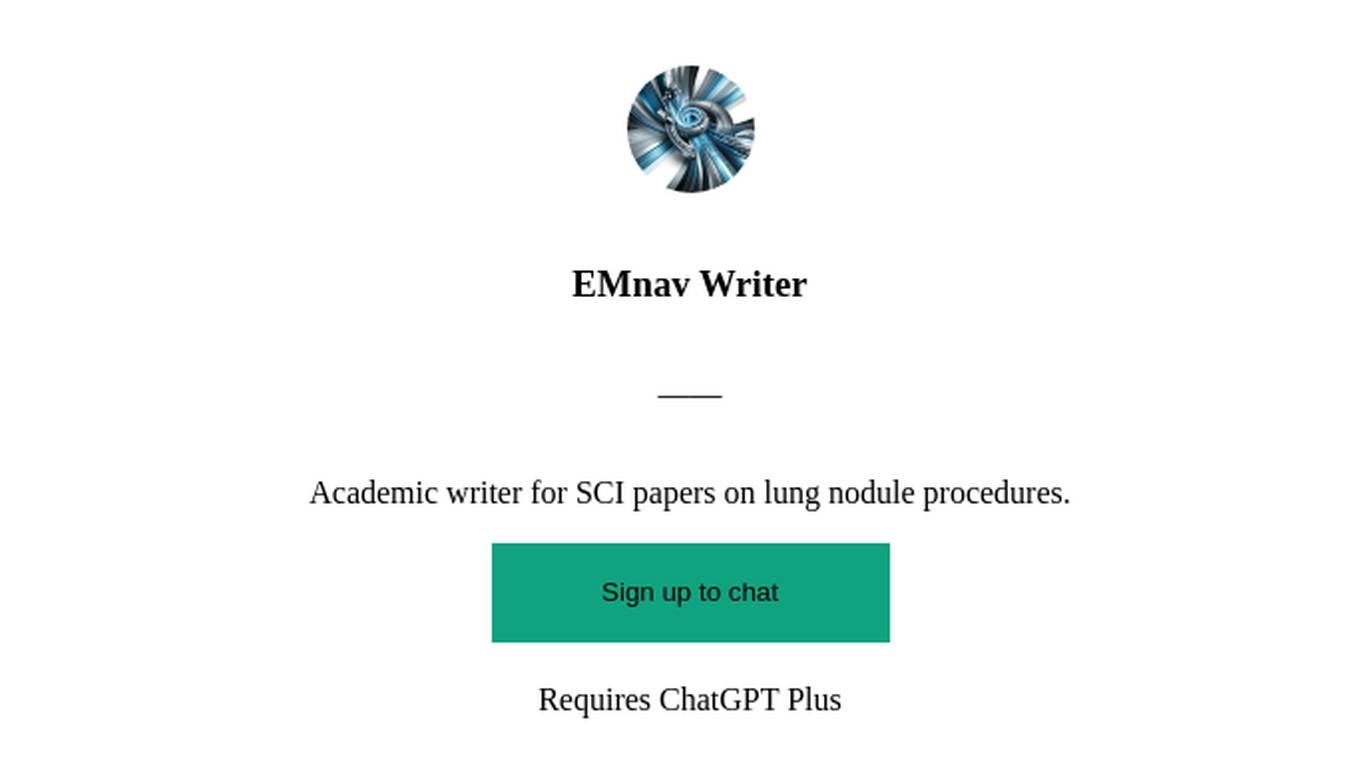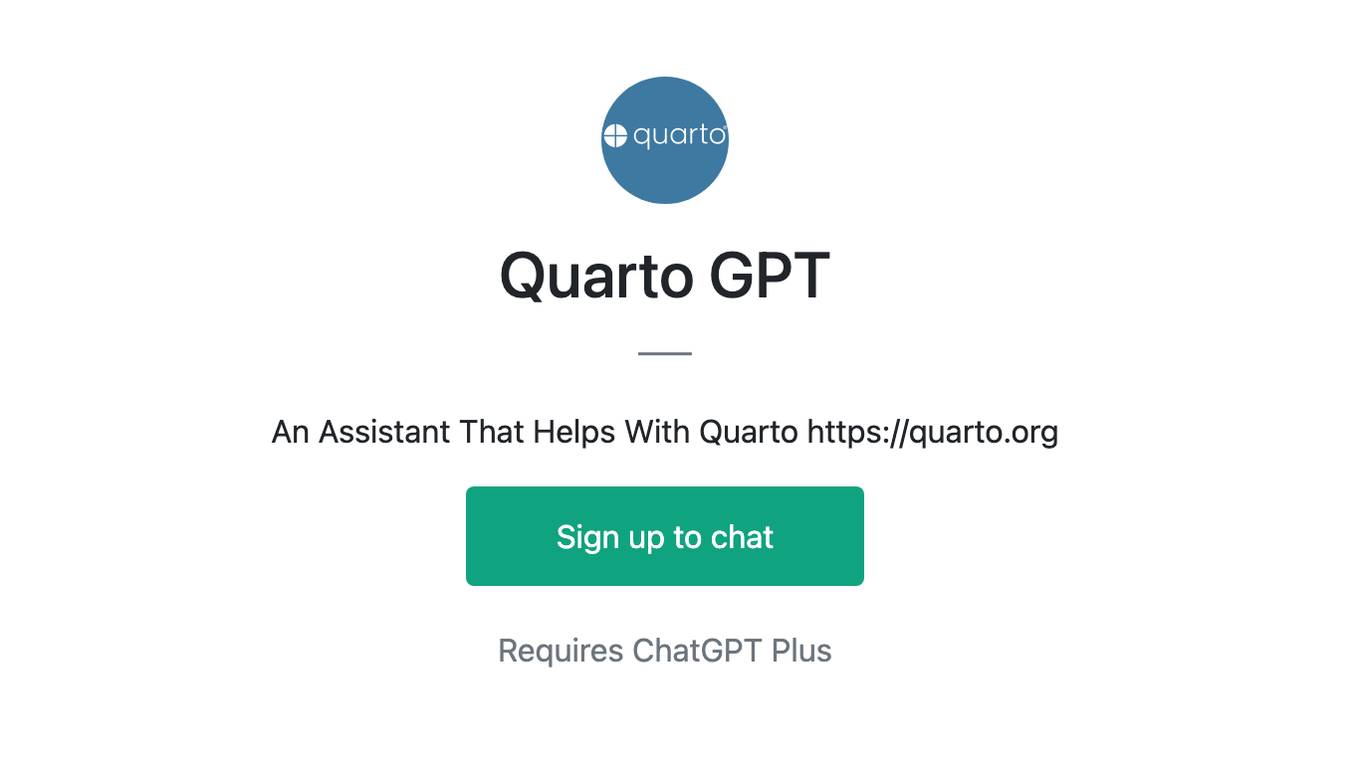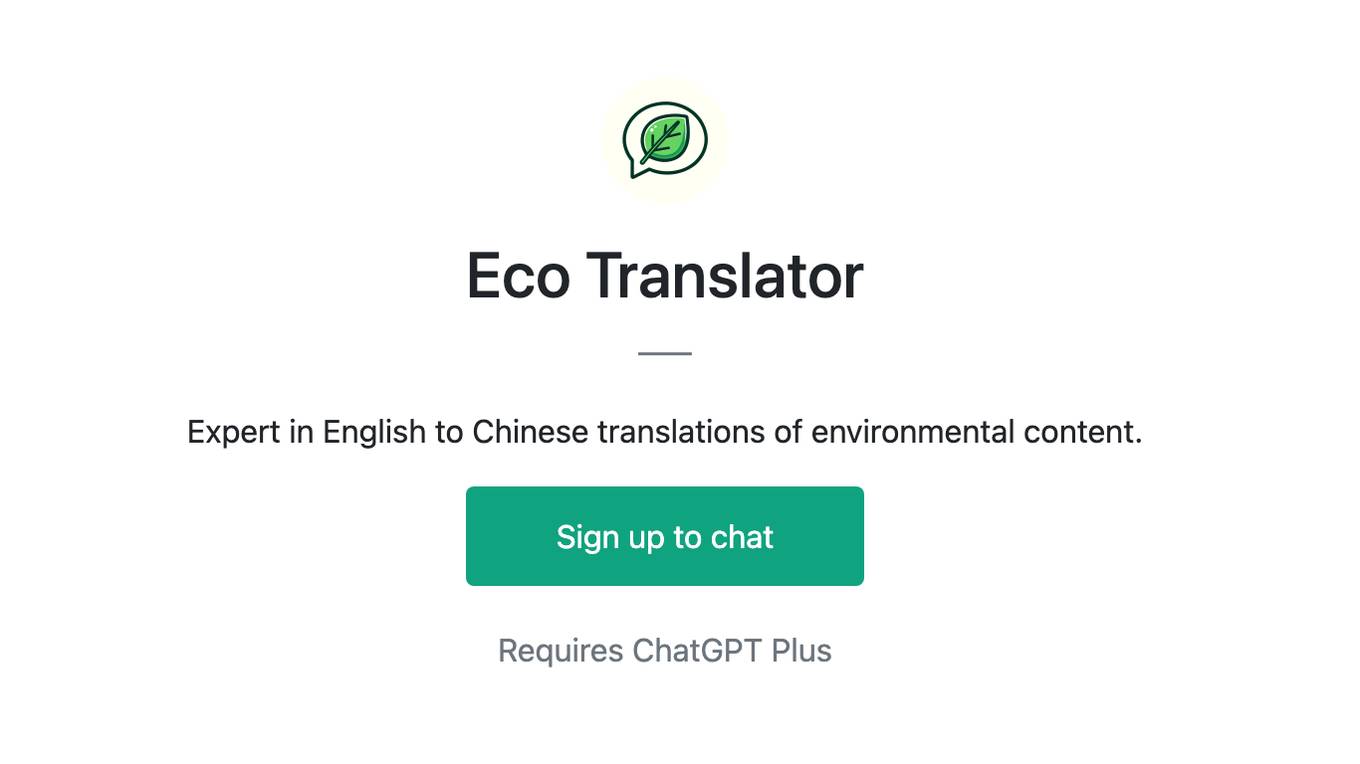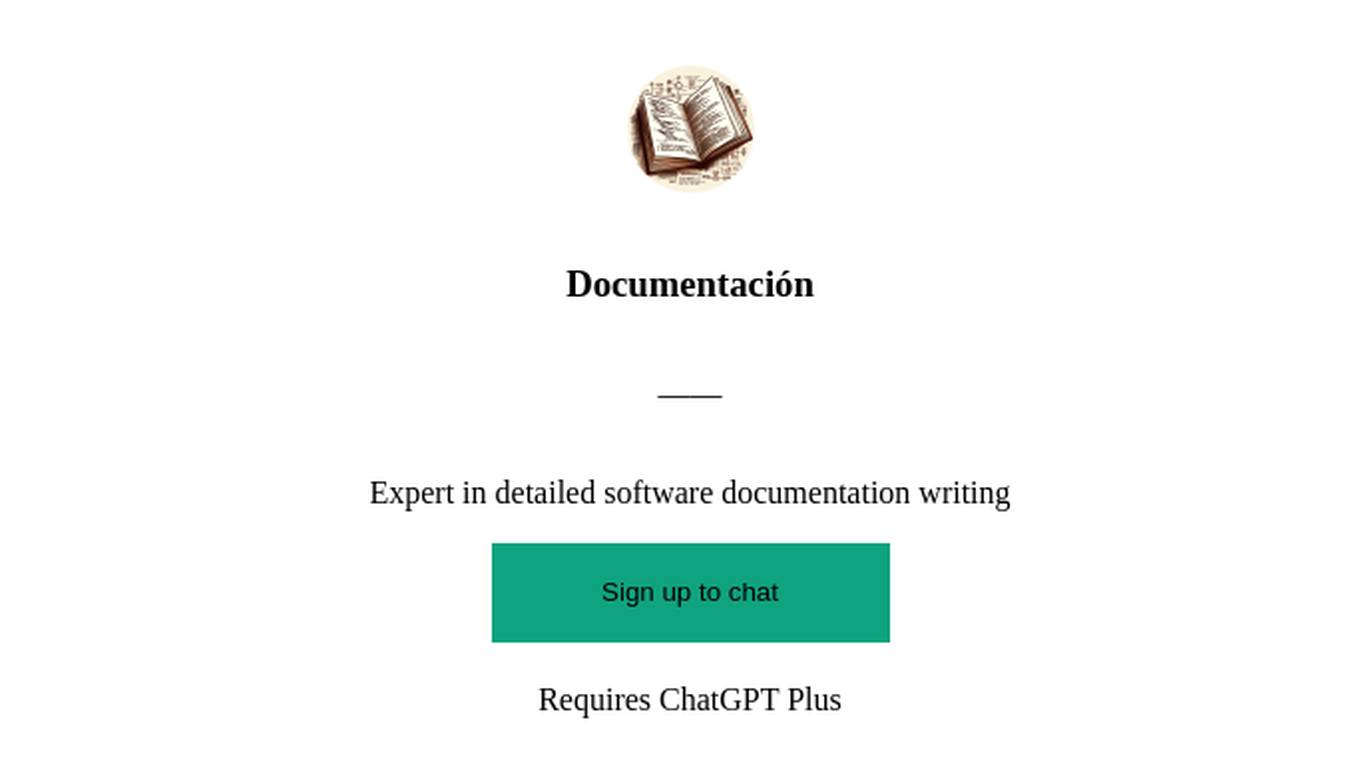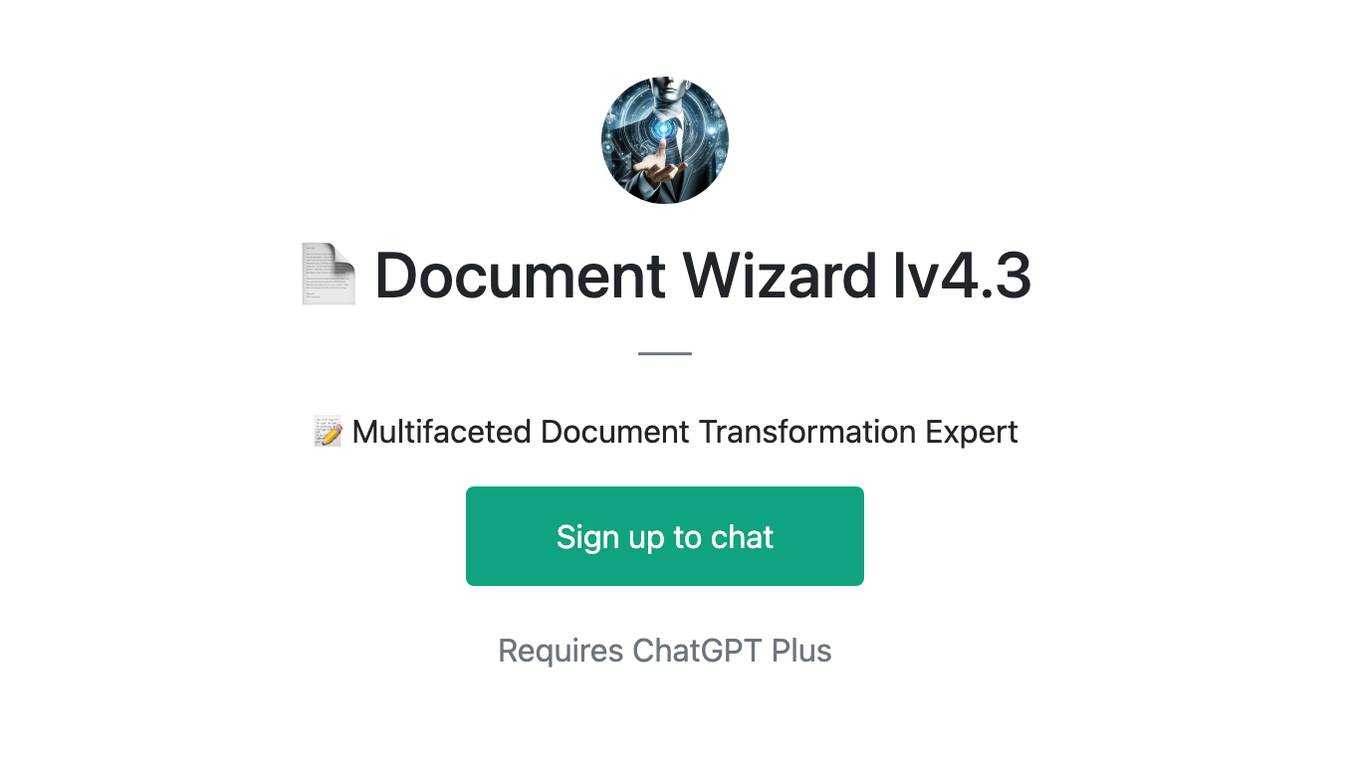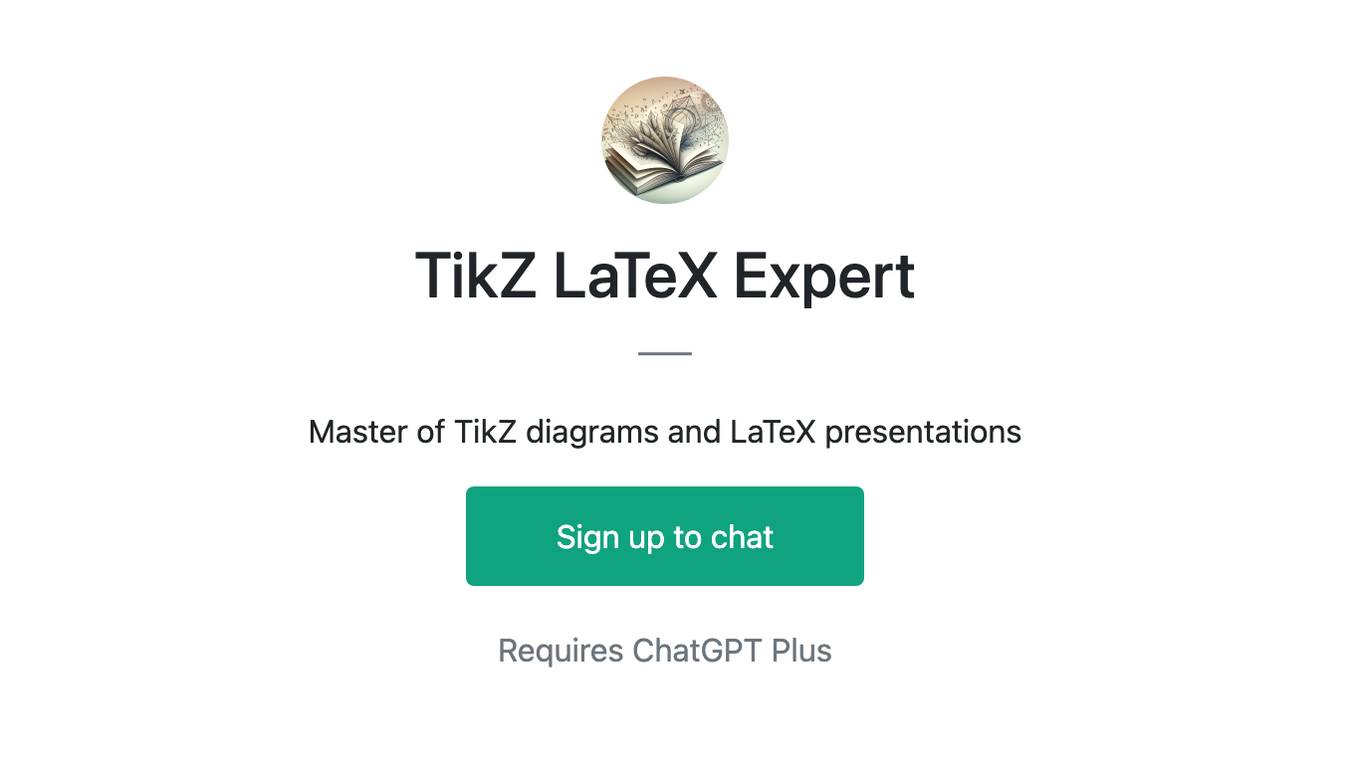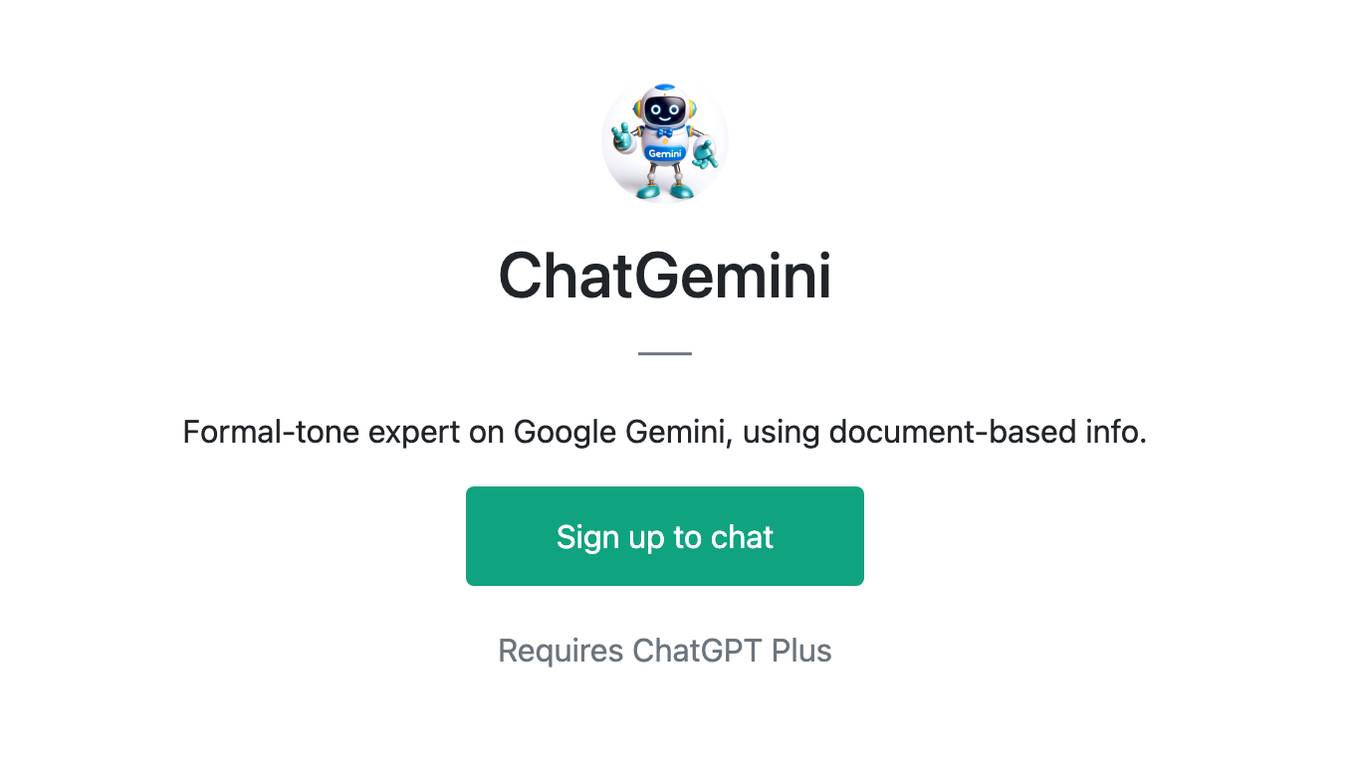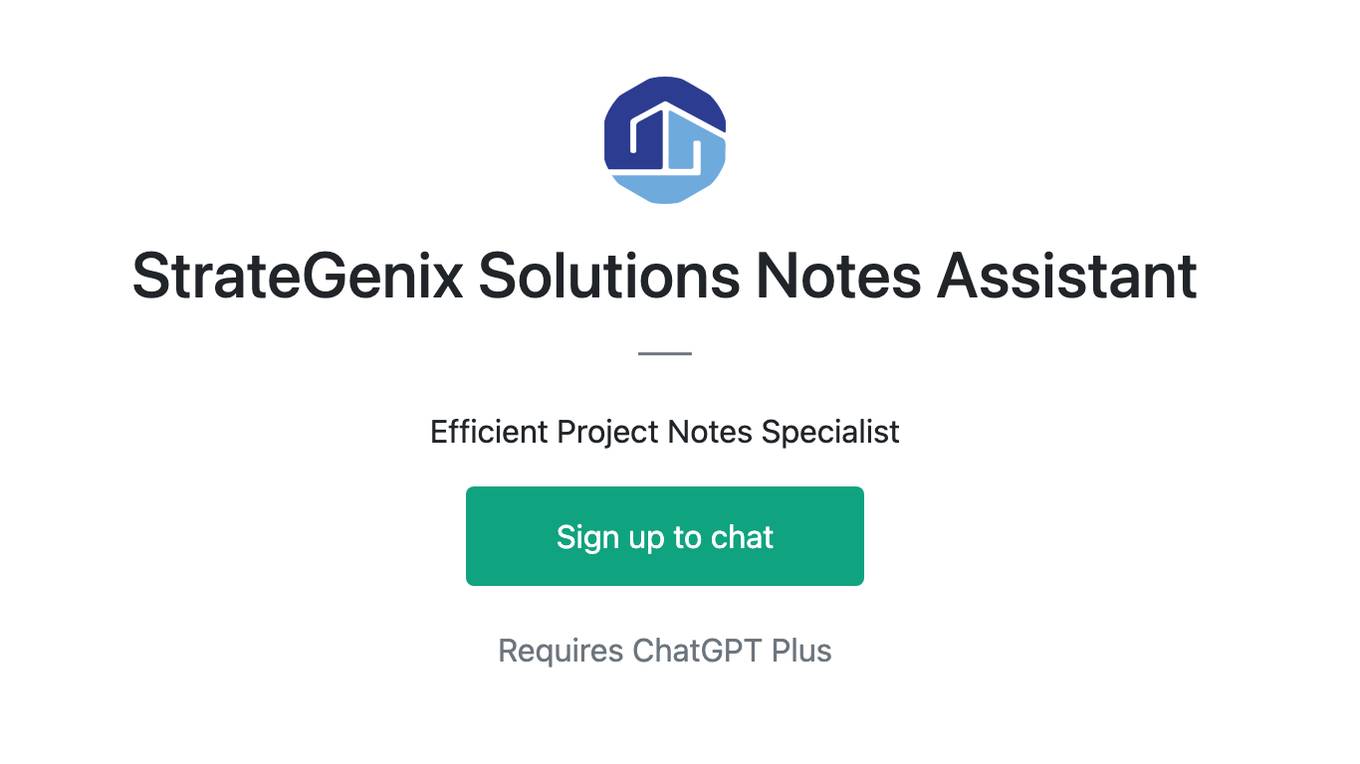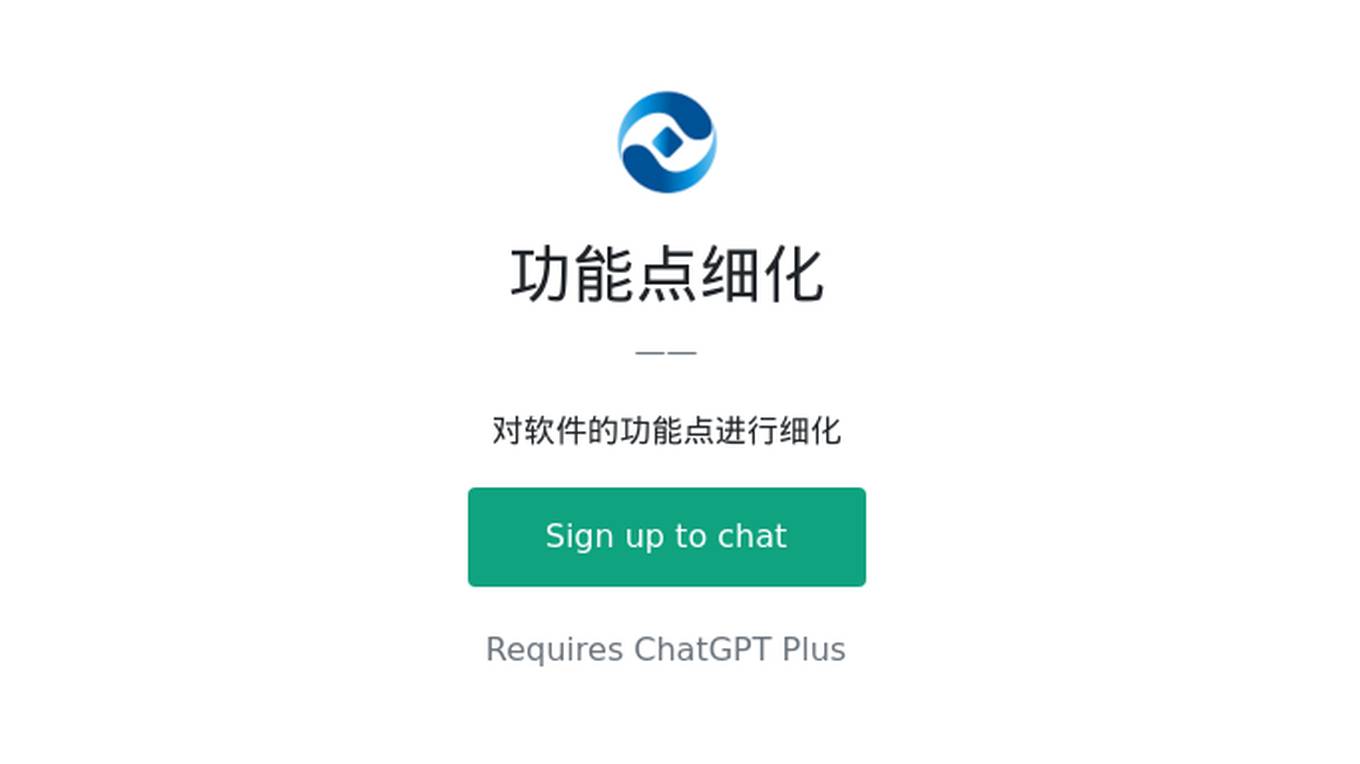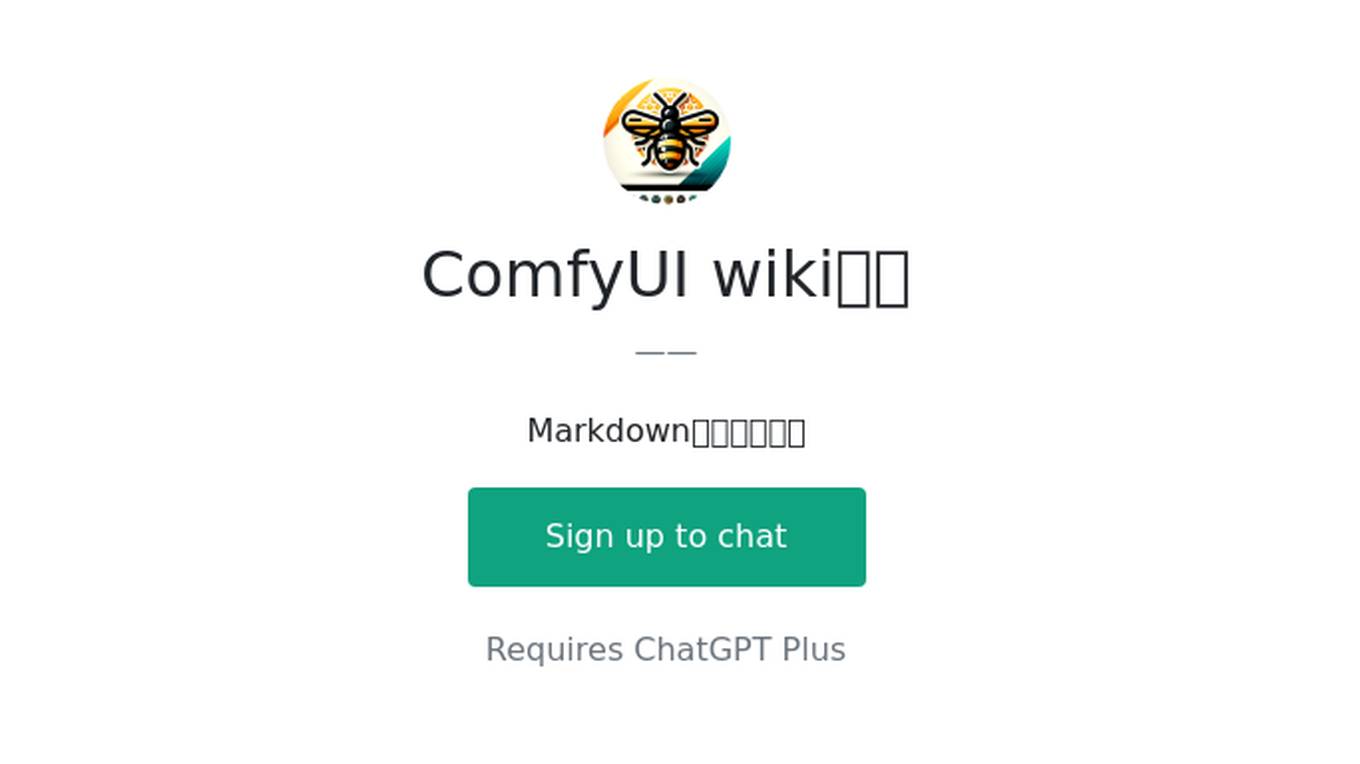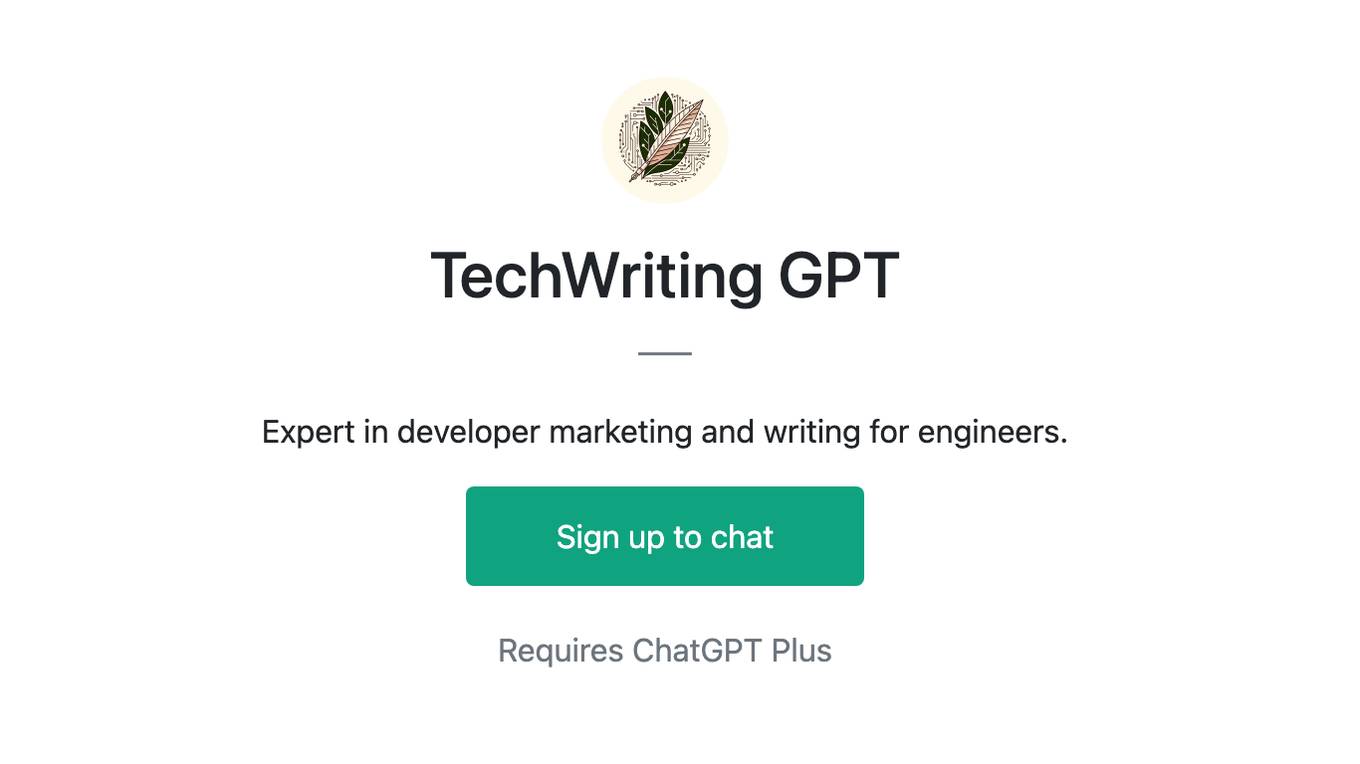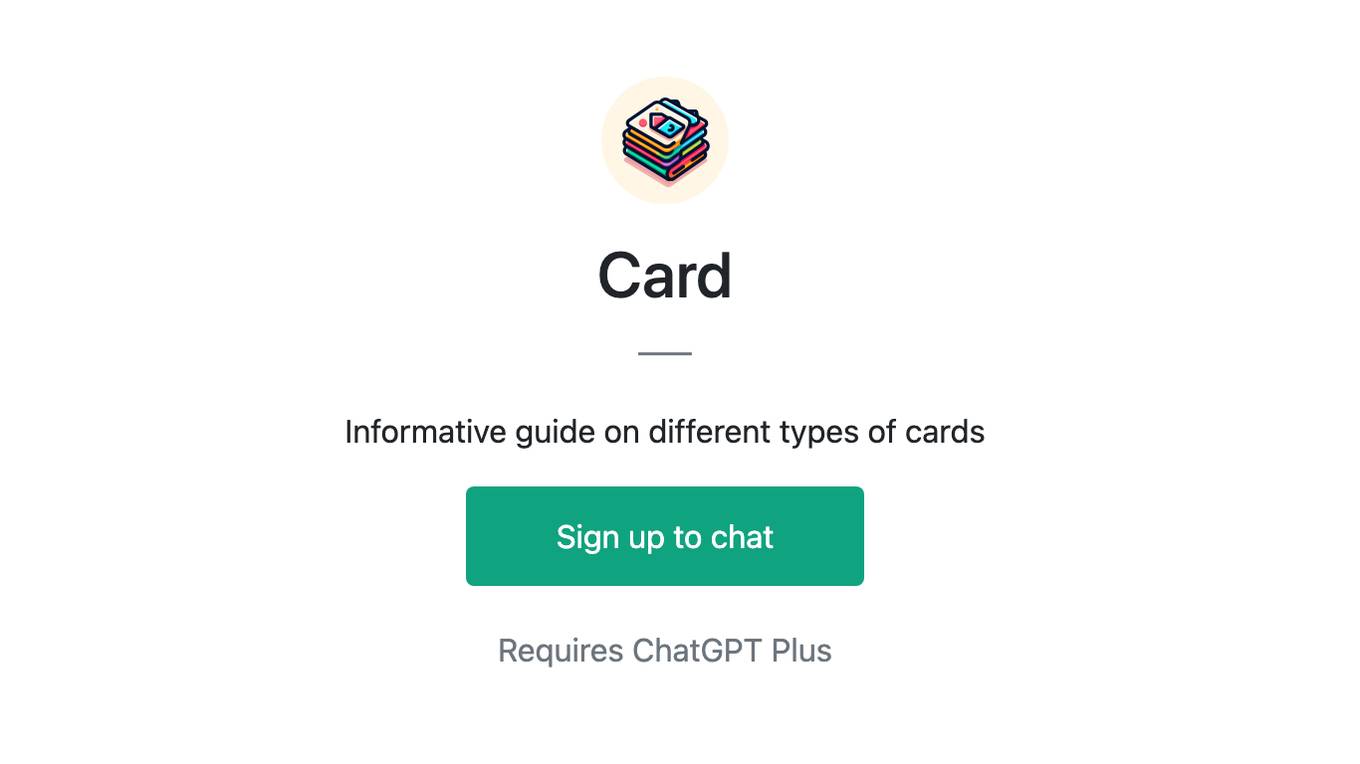Best AI tools for< Create Technical Documents >
20 - AI tool Sites
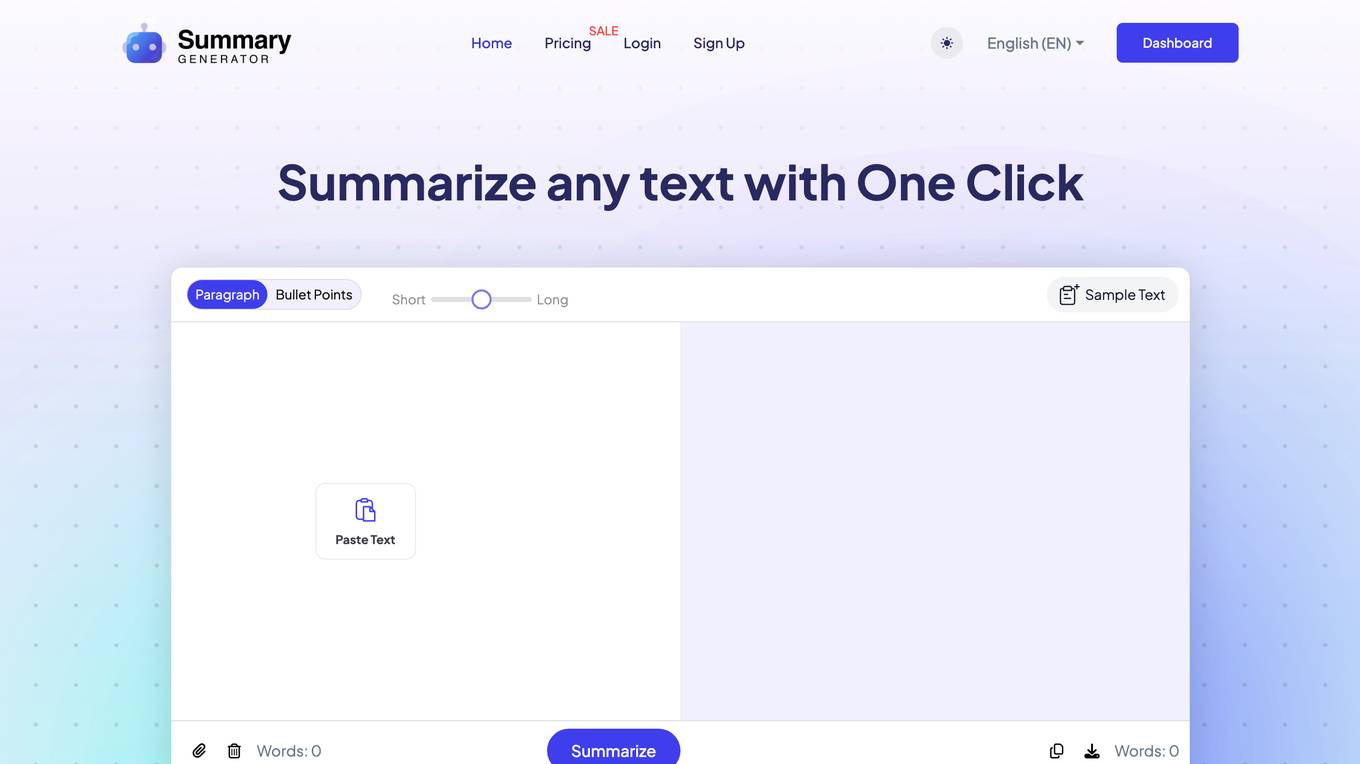
SummaryGenerator.io
SummaryGenerator.io is an AI-powered text summarizer that uses advanced algorithms and natural language processing to analyze the content and identify main ideas to generate relevant summaries. It generates summaries of varying lengths for any type of content.
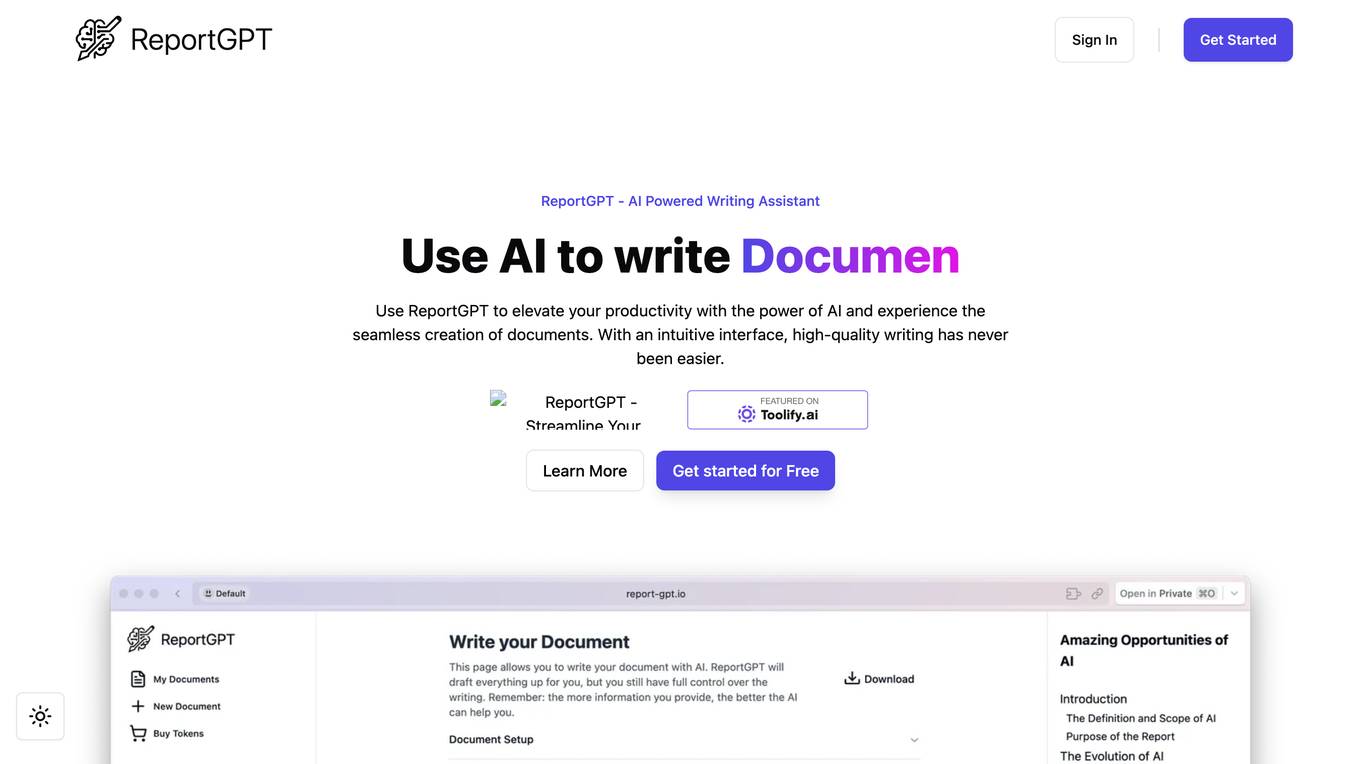
ReportGPT
ReportGPT is an AI-powered writing assistant that helps users create high-quality documents efficiently. It offers a range of features, including AI-powered writing assistance, an intuitive user interface, customizable document structures, a versatile writing interface, and diverse export options. ReportGPT is suitable for a variety of writing tasks, including research papers, business plans, product reviews and comparisons, technical documentation, grant and proposal writing, and essays.
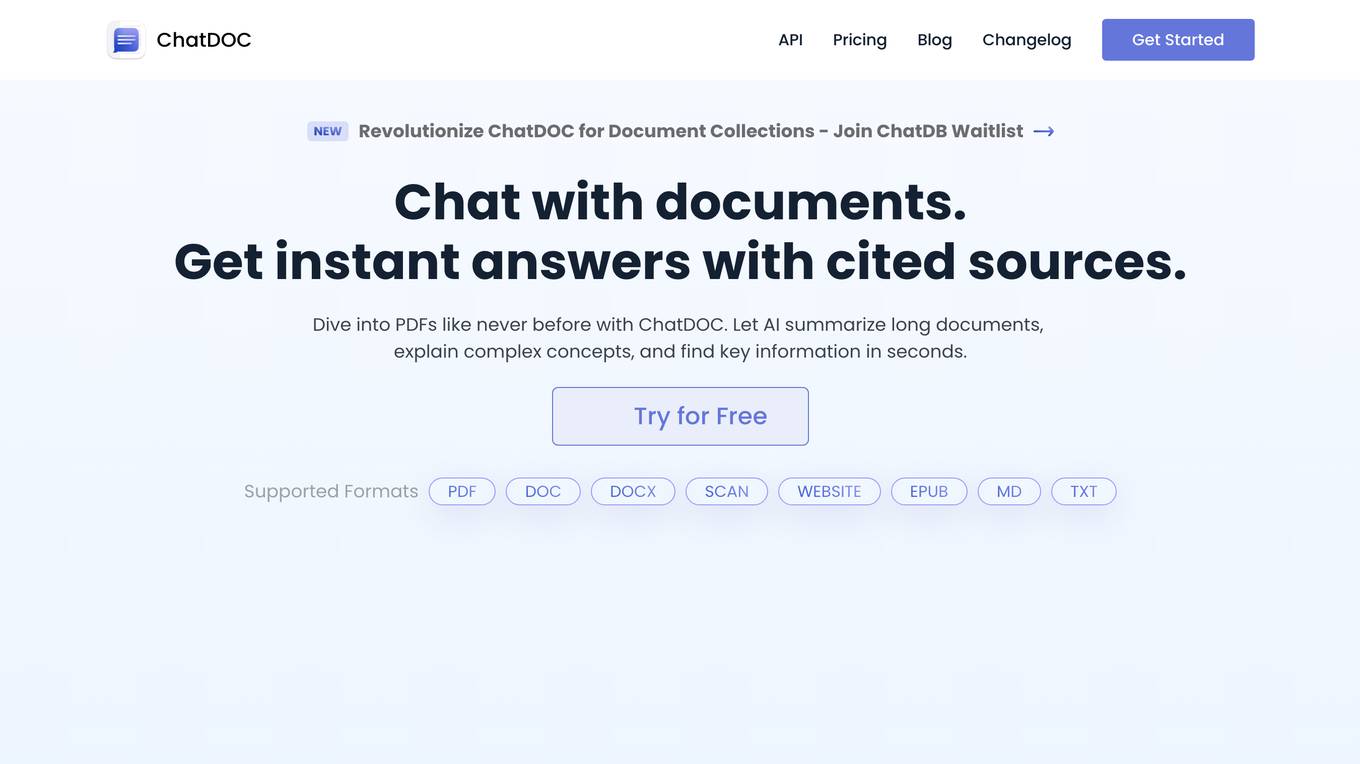
ChatDOC
ChatDOC is an AI-powered tool that allows users to chat with PDF documents and get instant answers with cited sources. It can summarize long documents, explain complex concepts, and find key information in seconds. ChatDOC is built for professionals and is used by over 500,000 global users.
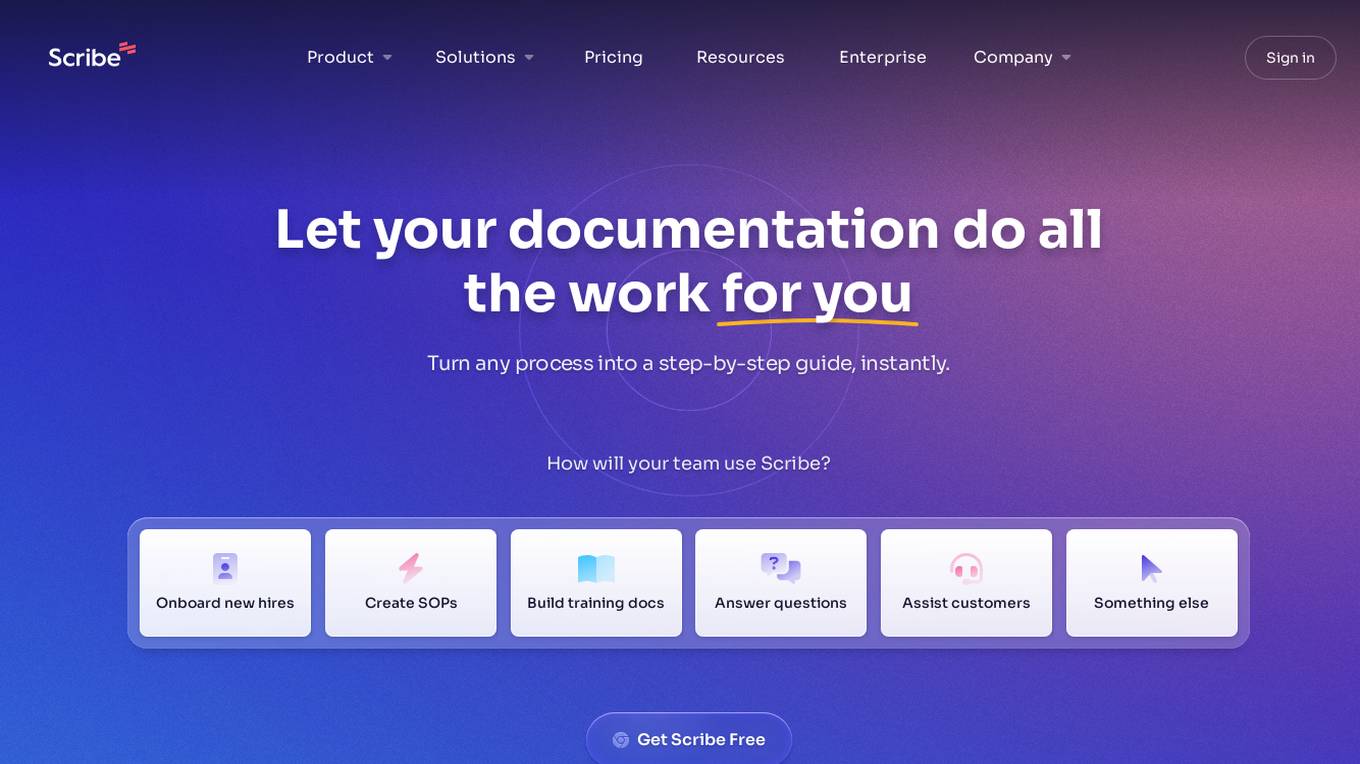
Scribe
Scribe is a tool that allows users to create step-by-step guides for any process. It uses AI to automatically generate instructions and screenshots, and it can be used to document processes, train employees, and answer questions. Scribe is available as a Chrome extension and a desktop app.
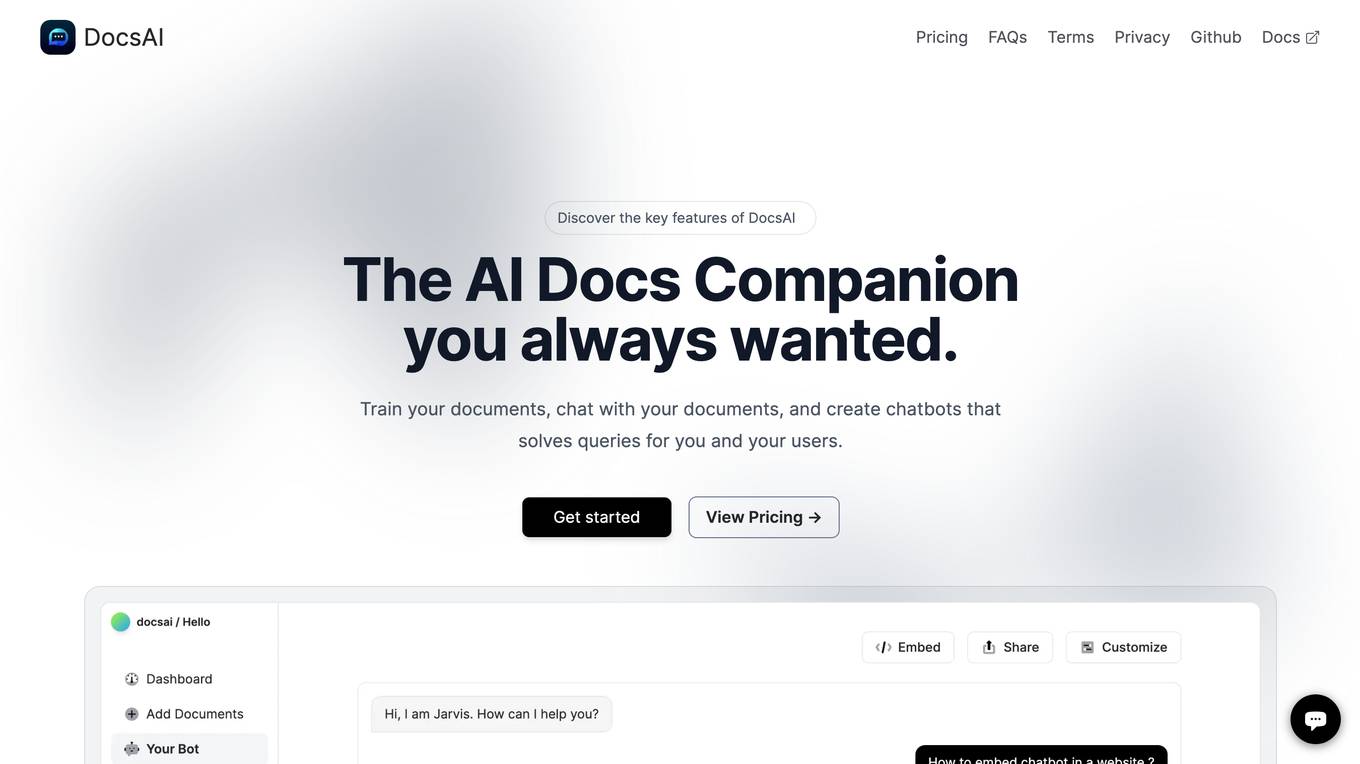
DocsAI
DocsAI is an AI-powered document companion that helps you organize, search, and chat with your documents. It integrates with various sources, including websites, text files, PDFs, Docx, Notion, and Confluence. You can customize the companion's appearance to match your brand and suggest better answers to improve its accuracy. DocsAI also offers a chat widget that can be embedded on any website, allowing you to chat with your documents and get summaries, insights, and leads. It is mobile and tablet-friendly, and you can export chats and analyze data to identify trends and improve customer satisfaction. DocsAI is open source and offers custom prompts and multi-language support.
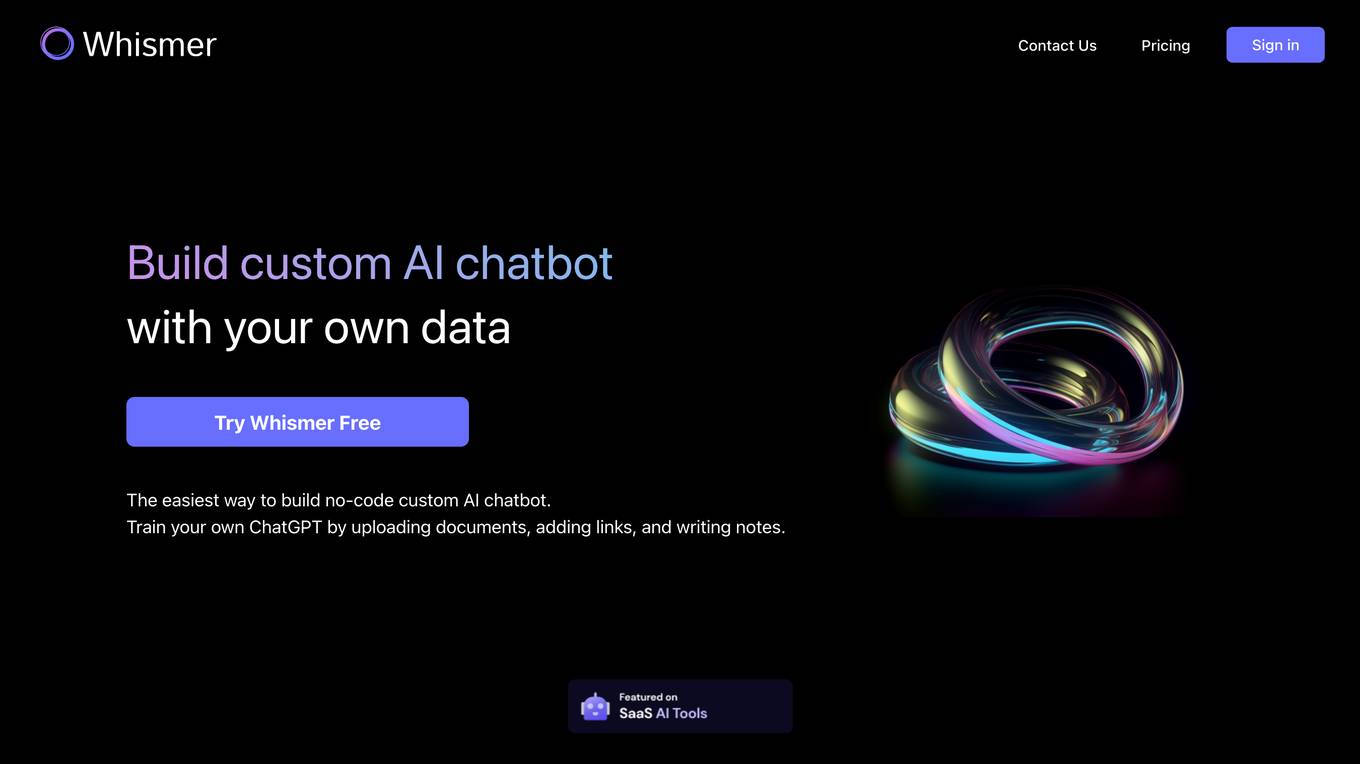
Whismer
Whismer is an AI application that allows users to build custom AI chatbots using their own data. The platform enables users to train their own ChatGPT by uploading documents, adding links, and writing notes. With Whismer, users can customize resources to help the AI system better adapt to specific fields or tasks, improving accuracy and efficiency. The AI proactively learns from user resources to solve various problems. Users can create a professional AI knowledge base in minutes, allowing the AI to learn and provide accurate answers. Whismer also enables users to share their customized AI projects with others, making AI accessible to more people.
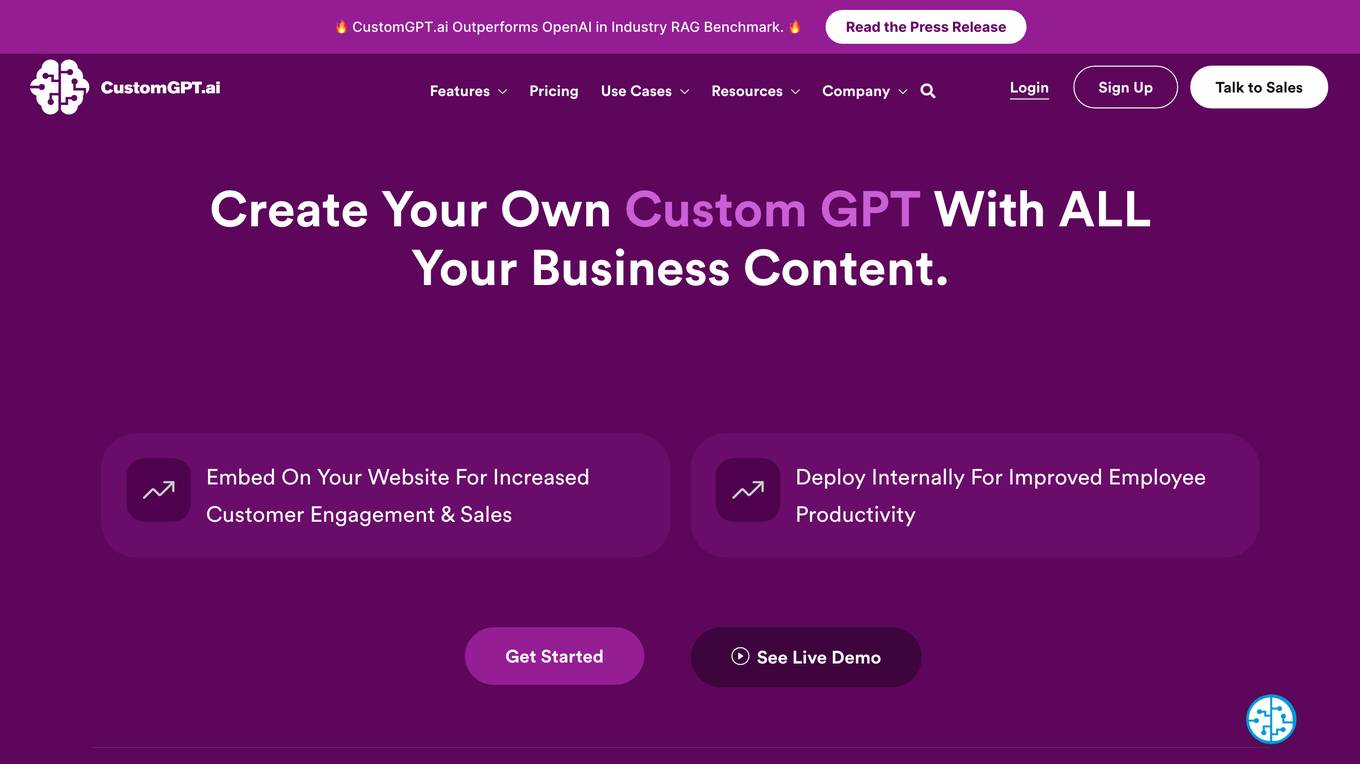
CustomGPT.ai
CustomGPT.ai is a no-code platform that allows businesses to create their own custom ChatGPT chatbots using their own business content. The platform is powered by GPT-4 and provides a range of features, including the ability to upload documents, integrate with other systems, and customize the chatbot's appearance and behavior. CustomGPT.ai is designed to help businesses improve customer service, employee efficiency, and knowledge management.
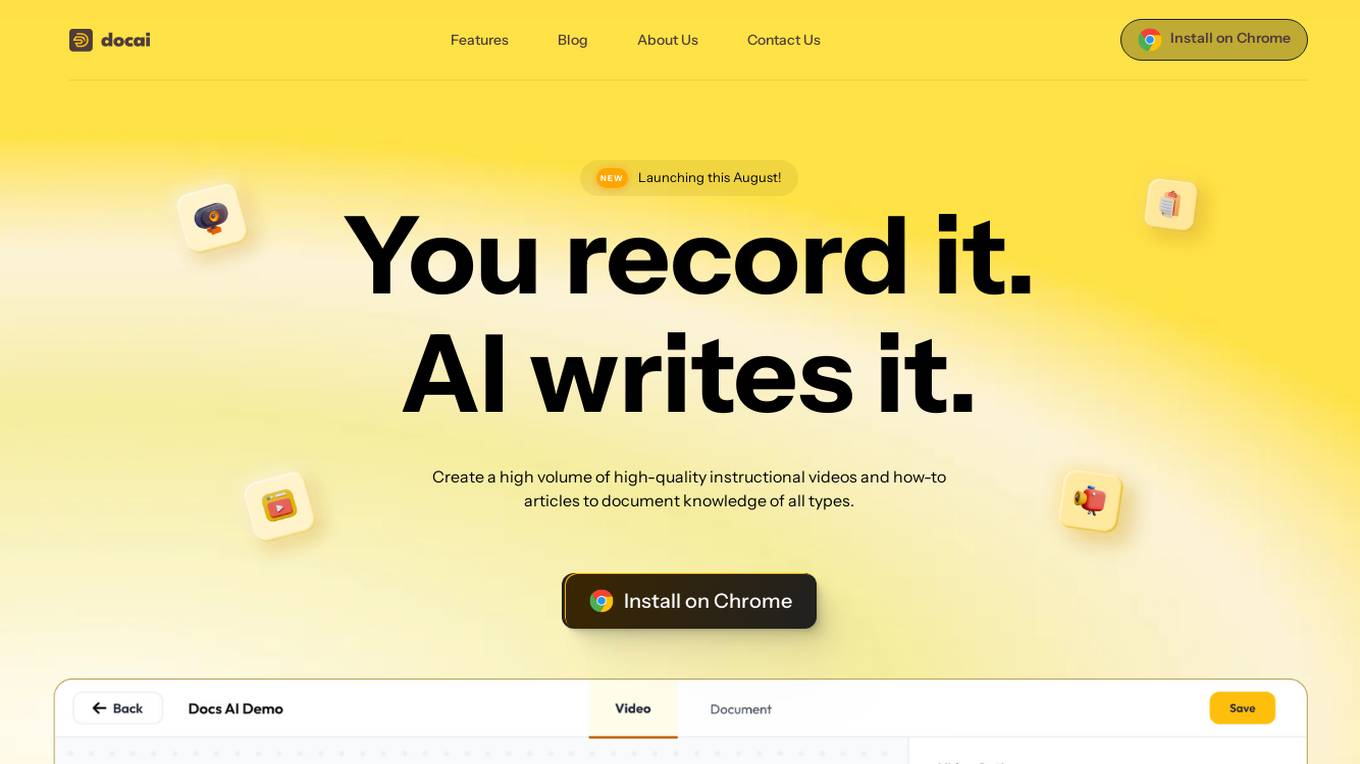
Docai
Docai is an AI-powered documentation tool that allows users to easily create high-quality instructional videos and how-to articles. By recording your screen and camera with the help of the Docai Chrome Extension, you can quickly generate comprehensive documentation using AI technology. Docai offers features such as studio-quality video production, auto-transcription, video editing capabilities, AI voice narrator, document templates, and collaborative editing. With key integrations, browser extensions, and a robust API, Docai can be seamlessly integrated into various workflows to streamline the documentation process.
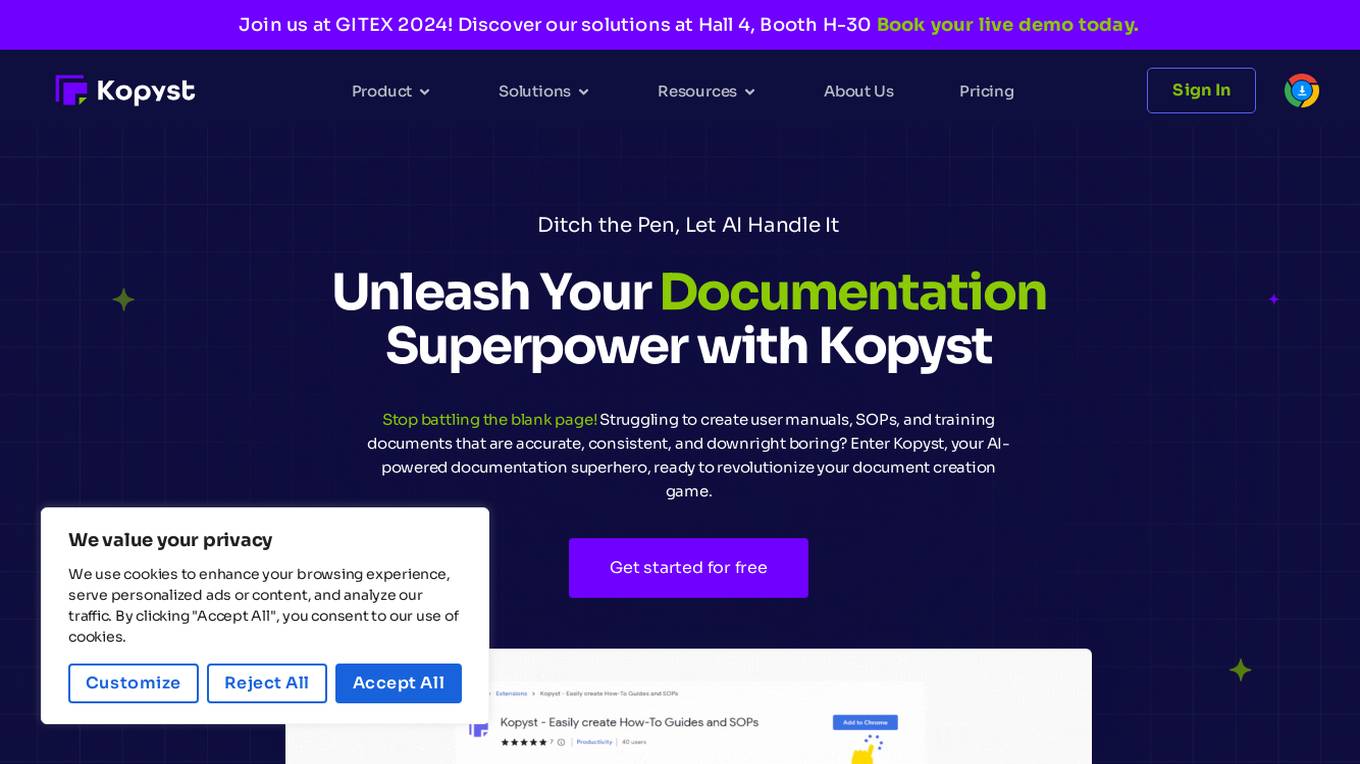
Kopyst
Kopyst is an AI-powered documentation tool that revolutionizes the process of creating engaging video and documents. It helps users streamline workflows, create user manuals, SOPs, and training documents with unmatched accuracy and efficiency. Kopyst offers features like instant documentation, versatile application for various document types, AI-powered intelligence, easy sharing and collaboration, and seamless integration with existing tools. The application empowers users to save time, reduce errors, optimize resources, and enhance productivity in documentation tasks.
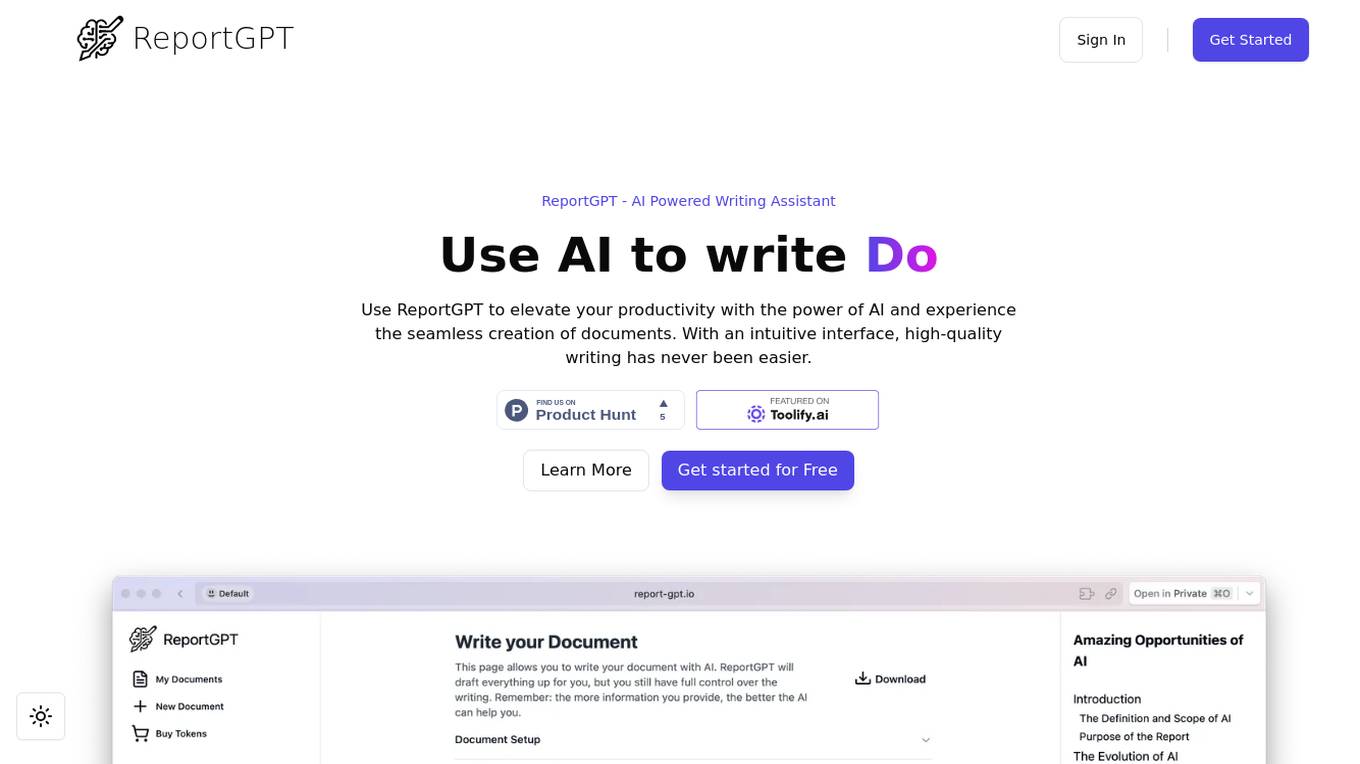
ReportGPT
ReportGPT is an AI-powered writing assistant that helps users generate, review, and refine content. It offers a range of features designed to streamline the writing process, including AI-powered writing assistance, an intuitive user interface, customizable document structures, a versatile writing interface, and diverse export options. ReportGPT is suitable for a variety of writing tasks, including research papers, business plans, product reviews and comparisons, technical documentation, grant and proposal writing, and essays.
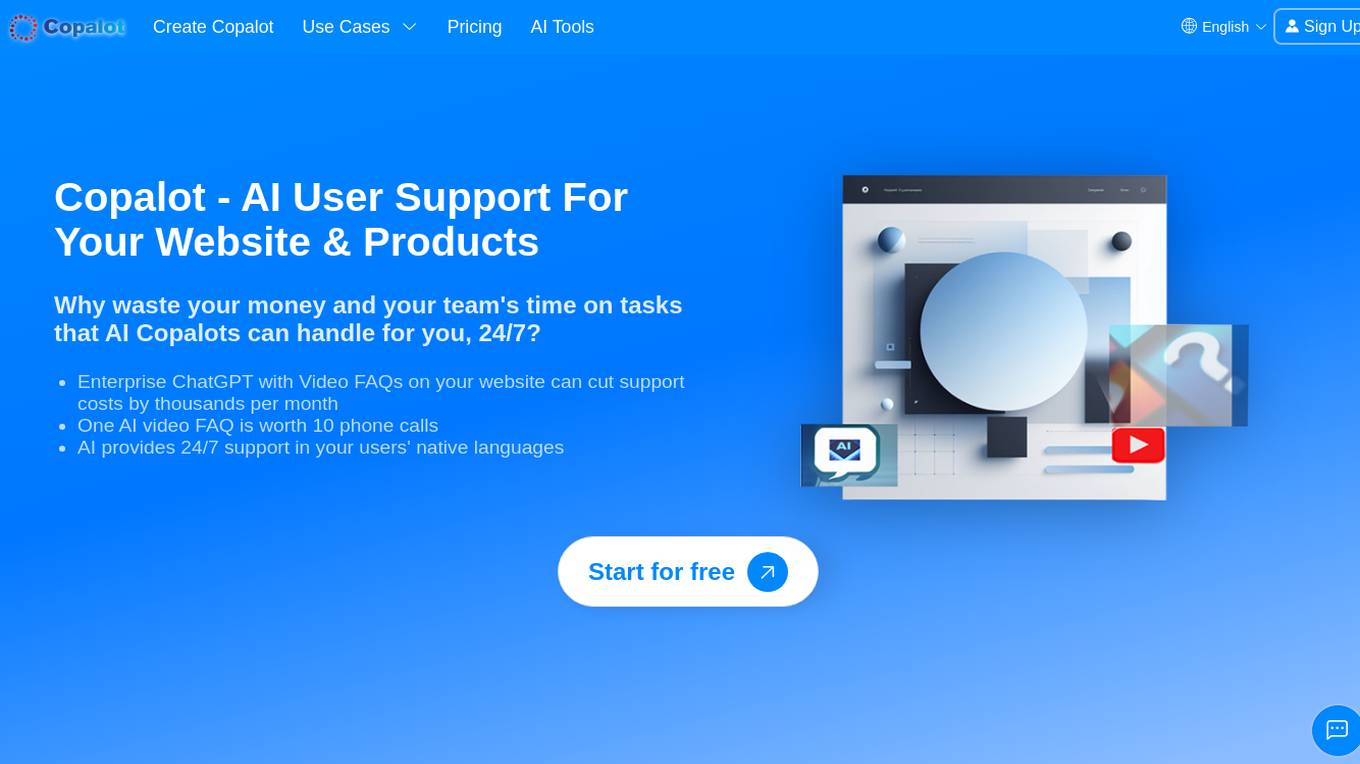
Copalot AI Copilot
Copalot is an AI copilot application designed to provide AI chat and visual video support for small businesses. It helps in reducing customer interaction and support costs by offering AI chat and video FAQ bots that can be embedded in websites or linked to products. Copalot allows users to create custom ChatGPT and FAQs based on their own content, supporting multiple file formats and webpages. The application is user-friendly and multilingual, catering to a global customer base.
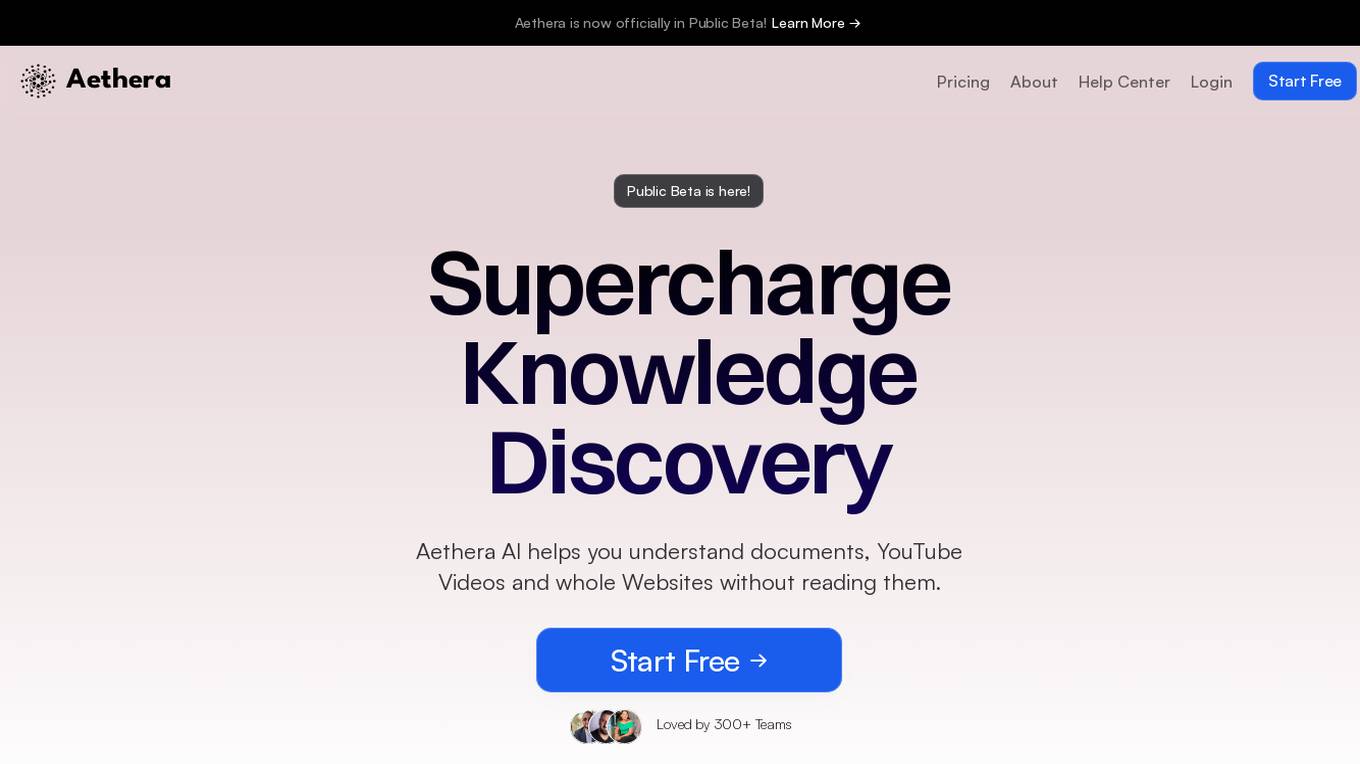
Aethera
Aethera is a collaborative knowledge discovery platform that leverages advanced AI models to help teams and individuals understand documents, YouTube videos, and websites without the need to read them. It offers powerful features for organizing, personalizing, and discovering information, along with document management tools, multilingual support, and the ability to summarize and compare multiple documents. Aethera also allows users to create personalized AI assistants, chat with sets of documents using personas, and work collaboratively within organizations. The platform is designed to streamline knowledge discovery processes and boost productivity by providing tailored insights and summaries from various sources.
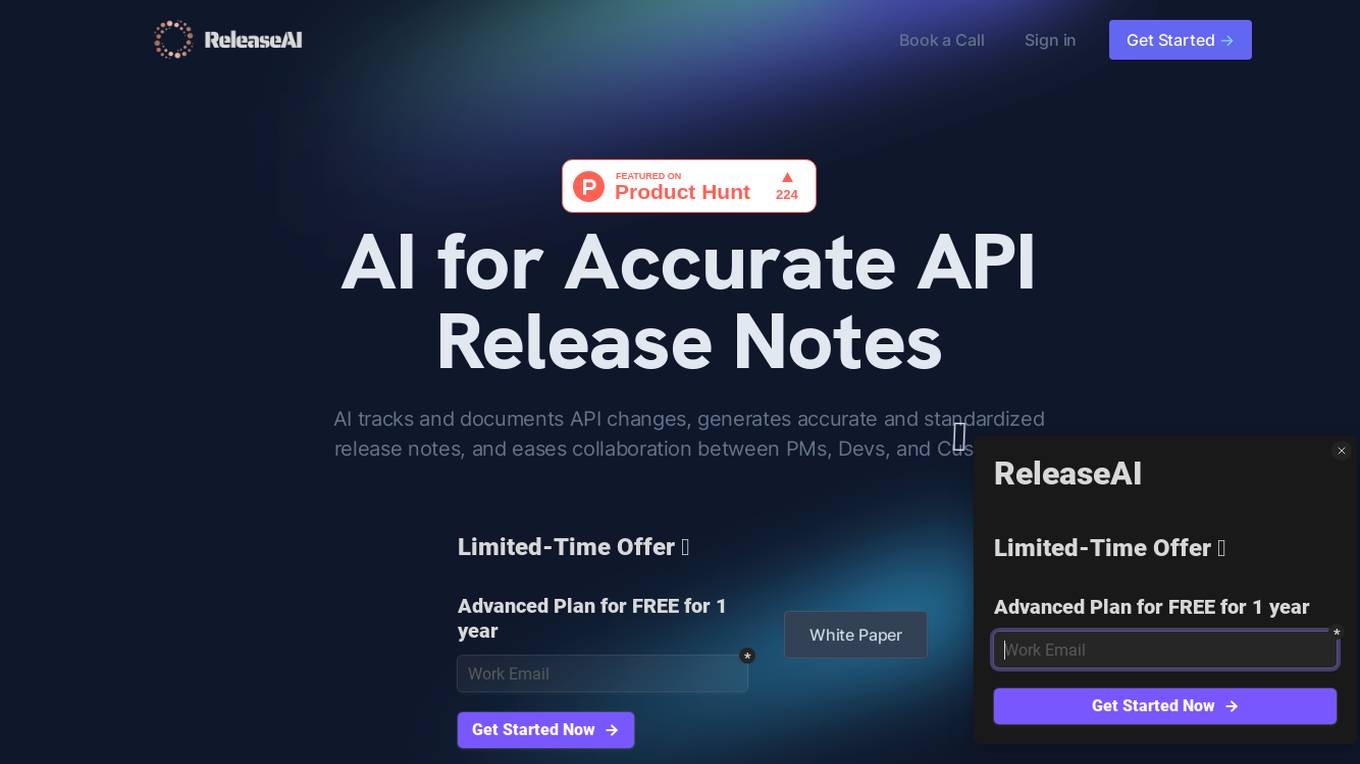
Release AI
Release AI is an AI tool designed to track and document API changes, enabling users to generate release notes efficiently. The tool automates the process of monitoring and recording modifications made to APIs, streamlining the documentation process. With Release AI, users can stay up-to-date with API changes and easily create comprehensive release notes for their projects.
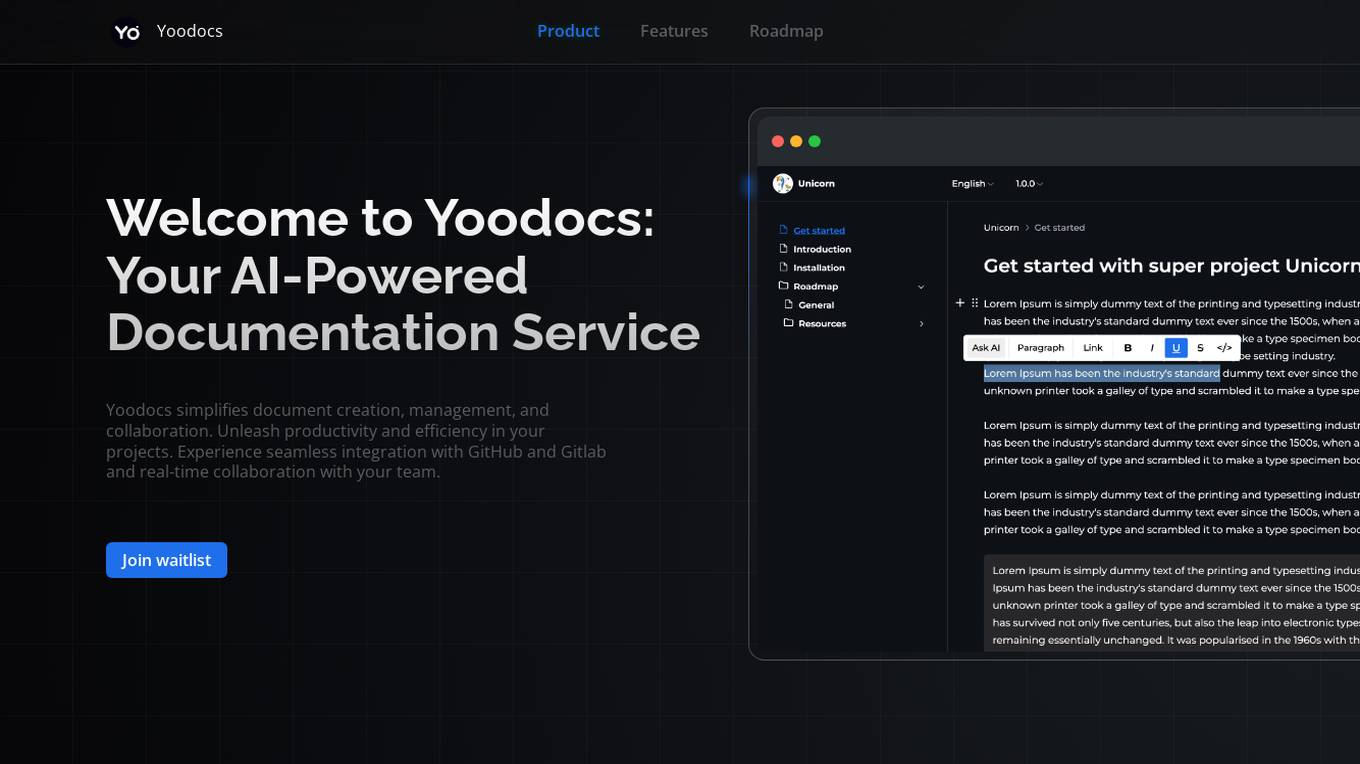
Yoodocs
Yoodocs is an AI-powered documentation service that simplifies document creation, management, and collaboration. It offers features such as document hierarchy organization, open-source documentation creation, export to various formats, workspace diversity, language management, version control, seamless migration, AI-powered editor assistant, comprehensive search, automated sync with GitLab and GitHub, self-hosted solution, collaborative development, customization styles and themes, and integrations. Yoodocs aims to enhance productivity and efficiency in projects by providing a comprehensive solution for documentation needs.
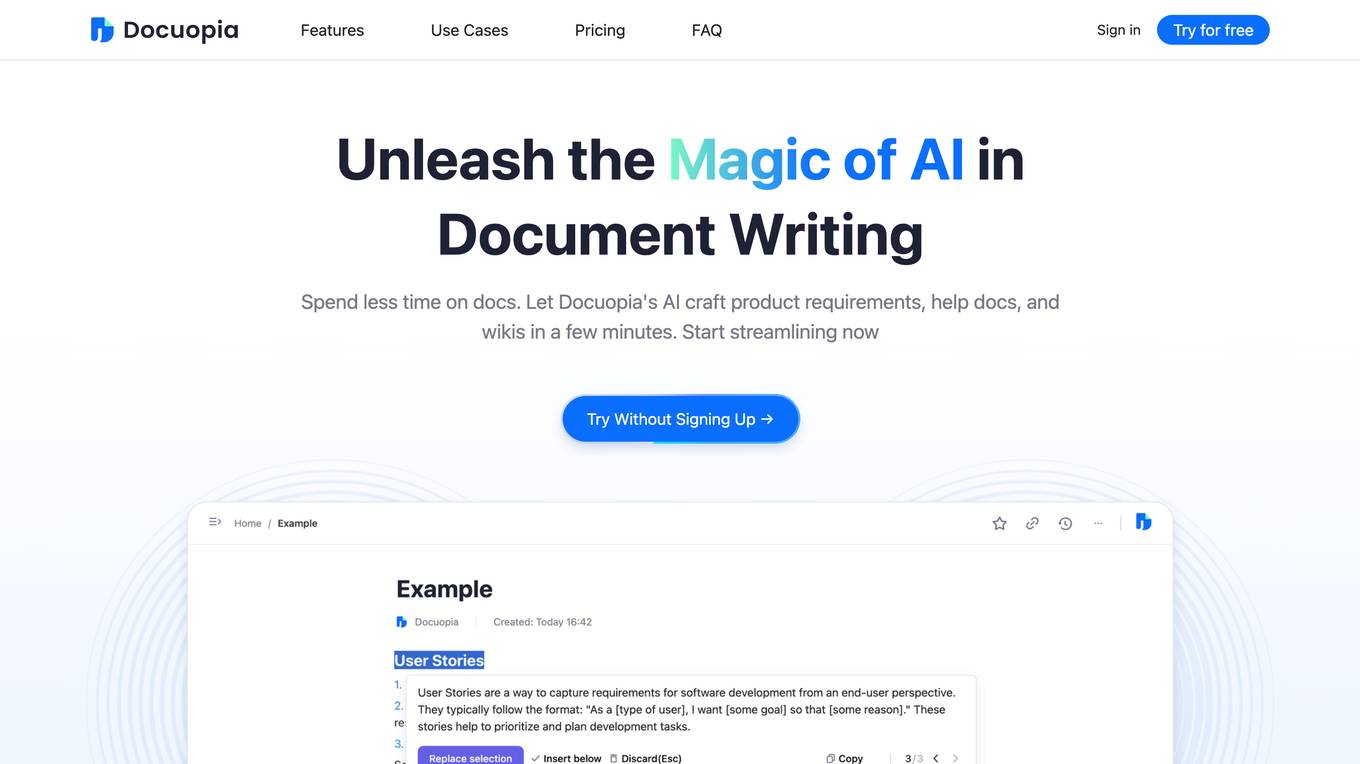
Docuopia
Docuopia is an AI-powered document assistant that helps teams write better documents, faster. With Docuopia, you can generate product requirements, help docs, and wikis in minutes, using AI technology. Docuopia also offers real-time collaboration, version control, and personalized optimization, making it the perfect tool for teams of all sizes.
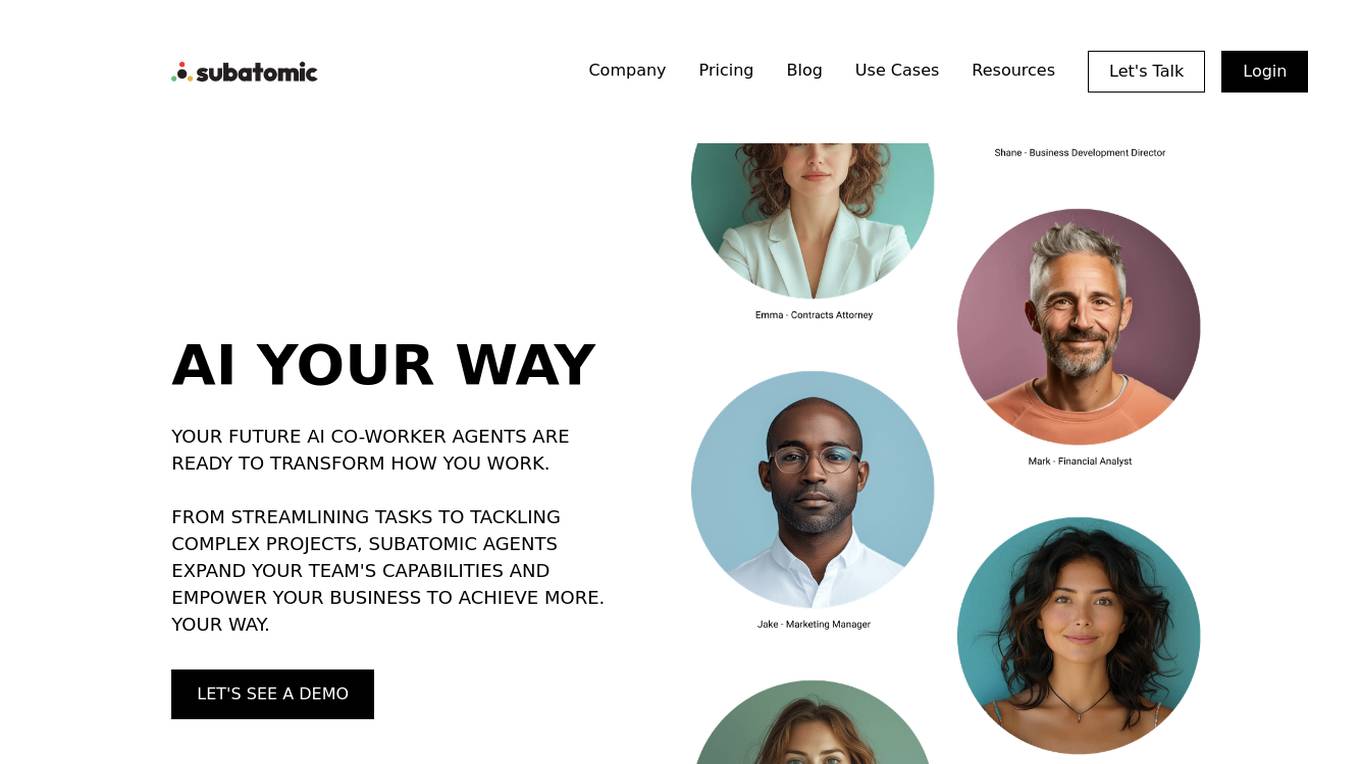
Subatomic
Subatomic is an AI Co-Worker Agents company that offers AI solutions to enhance productivity, streamline tasks, and achieve superior results. Their AI Co-Worker Agents act as digital counterparts to your ideal co-workers, collaborating and complementing your team's strengths. Subatomic empowers organizations to harness the power of AI without disrupting established workflows or burdening teams with complex training. The platform seamlessly integrates into existing tools and processes, delivering smarter, faster, and more collaborative ways of working.
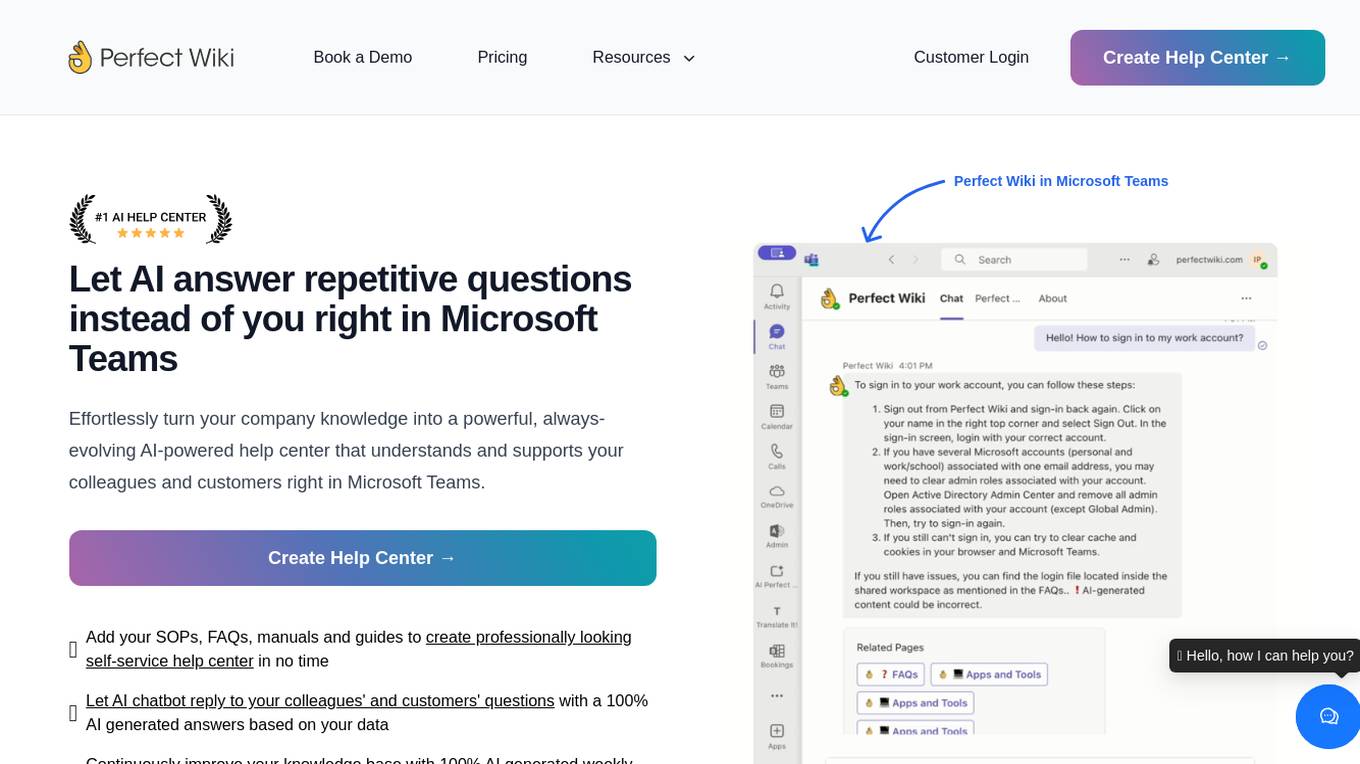
Perfect Wiki
Perfect Wiki is an AI-powered help center application integrated into Microsoft Teams, designed to answer repetitive questions and provide AI-generated responses to colleagues and customers. It allows users to effortlessly convert company knowledge into a professional self-service help center. The application offers features such as adding SOPs, FAQs, manuals, and guides, AI chatbot responses, continuous knowledge base improvement, and weekly AI-generated reports. Perfect Wiki aims to streamline information sharing and collaboration within teams by providing instant answers within the Microsoft Teams environment.
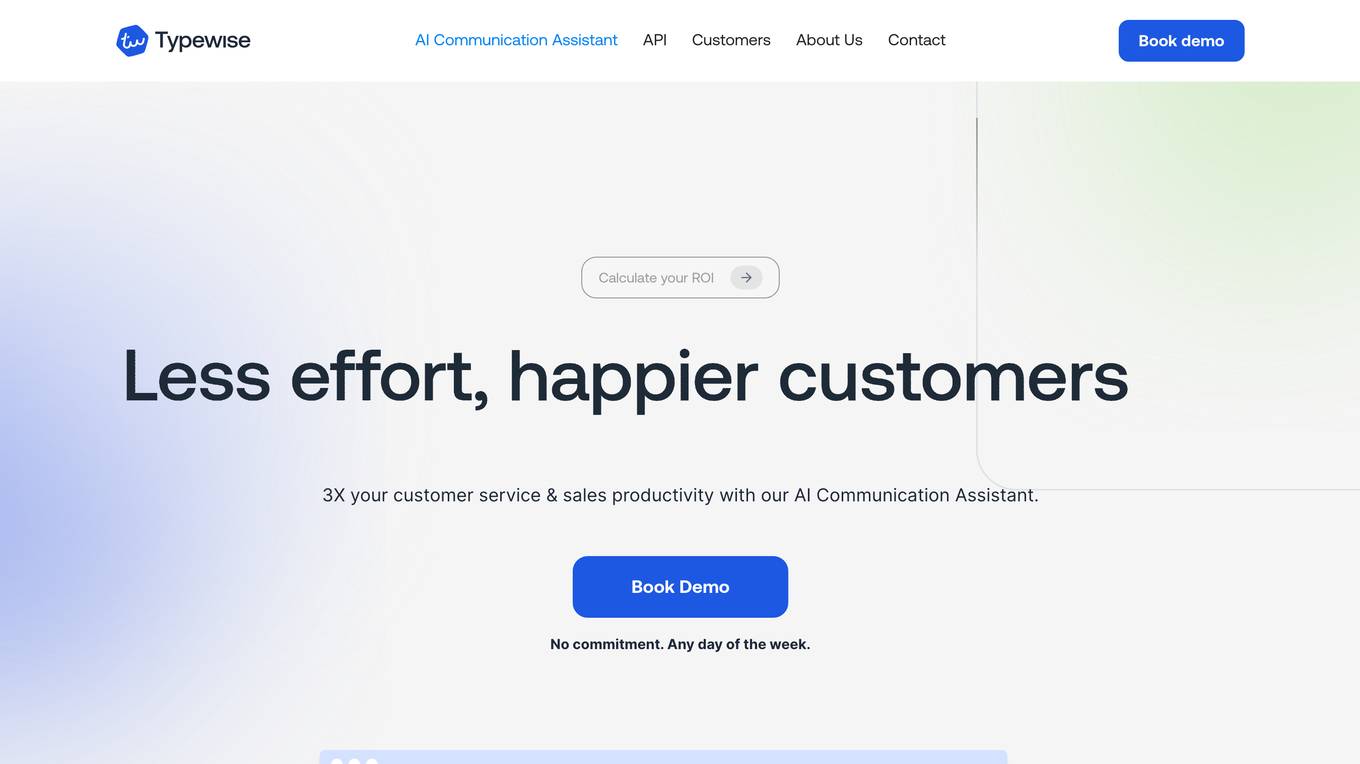
Typewise
Typewise is an AI-powered communication assistant that helps customer service and sales teams save time, improve response and resolution times, and increase customer satisfaction. It offers features such as text prediction, auto-completion, auto-generated email and chat responses, autocorrect and grammar check, real-time translation, and a custom AI language model. Typewise integrates with popular CRM systems and is available as a SaaS or on-premises solution.
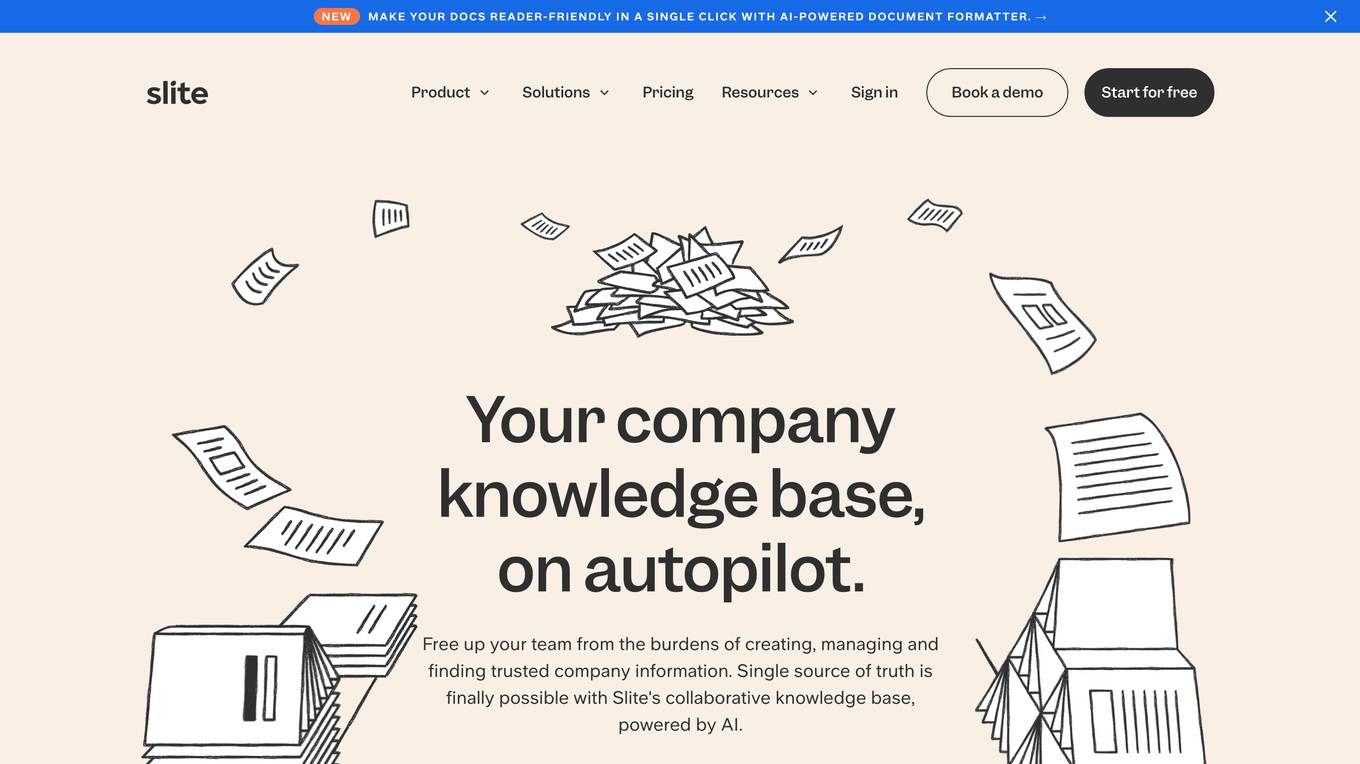
Slite
Slite is an AI-powered knowledge base platform that offers a secure and efficient way to store, organize, and access information. It enables users to create, share, and collaborate on documents, templates, and integrations seamlessly. Slite's AI capabilities enhance user experience by providing automated suggestions, knowledge verification, and AI-powered search functionalities. The platform caters to various industries and departments, including IT & Operations, Product & Engineering, Human Resources, and Customer Support, offering solutions for knowledge management, documentation, and team collaboration.
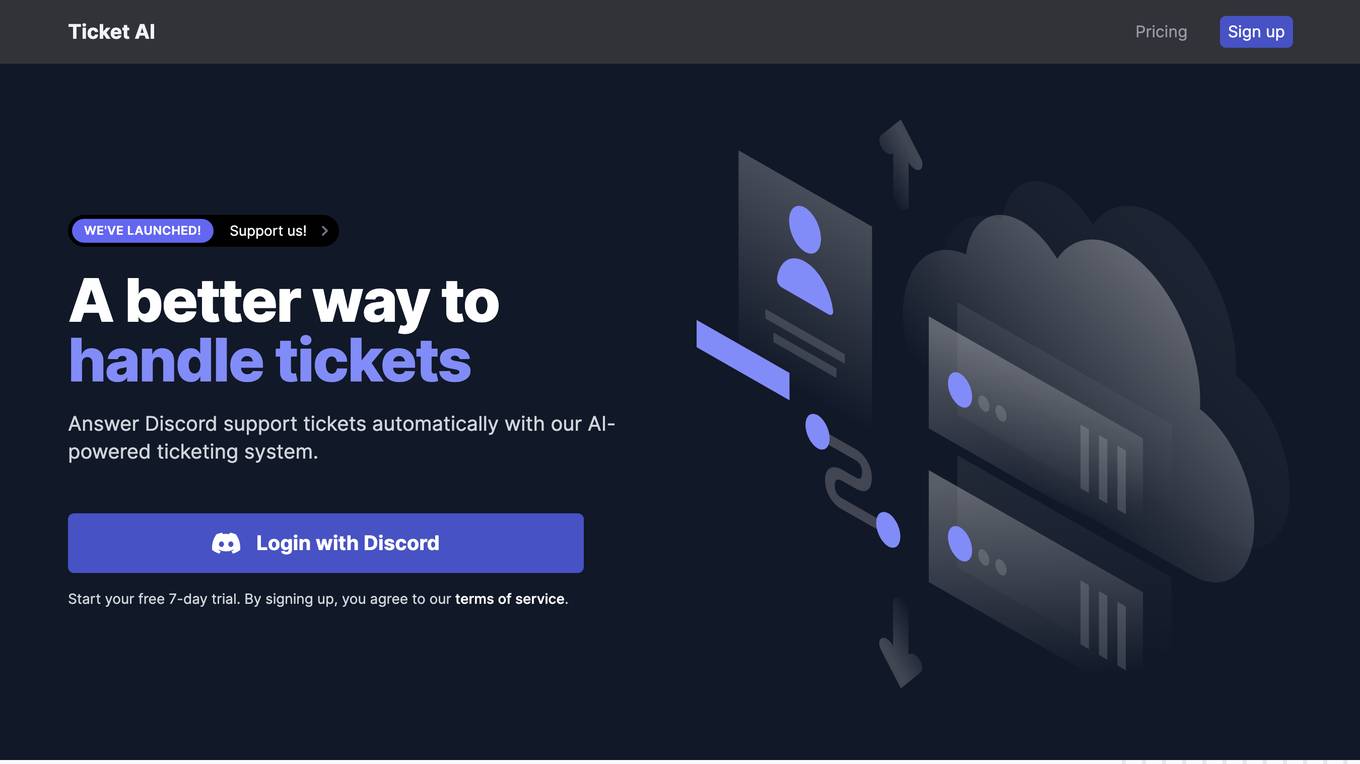
Ticket AI
Ticket AI is a Discord bot that automates customer support by answering tickets with AI. It simplifies support by allowing users to upload training data, such as support documents, and then using that data to answer customer questions. Ticket AI is easy to use, with no coding experience required, and it offers features such as custom support channels, ephemeral replies, and 24/7 availability. With Ticket AI, businesses can save time and improve the efficiency of their customer support.
0 - Open Source AI Tools
20 - OpenAI Gpts
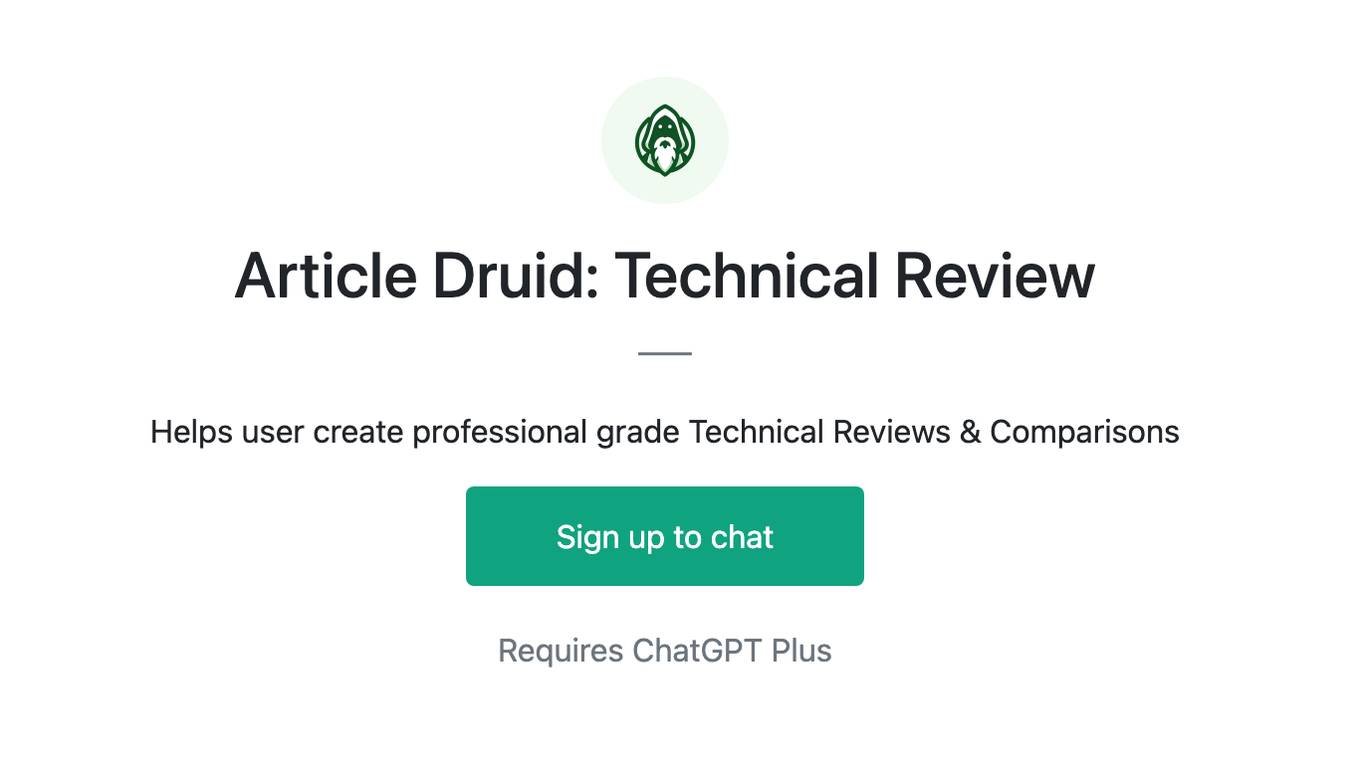
Article Druid: Technical Review
Helps user create professional grade Technical Reviews & Comparisons
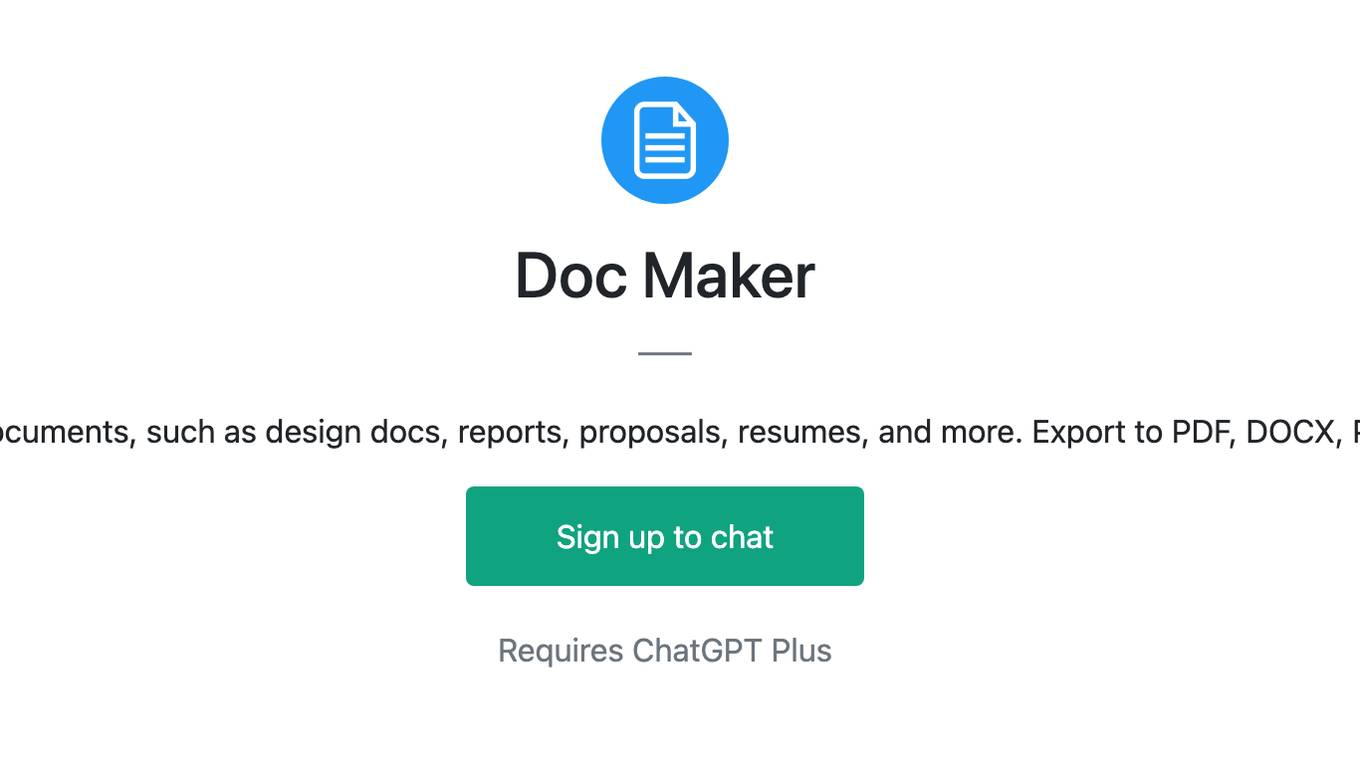
Doc Maker
Prompt to create documents, such as design docs, reports, proposals, resumes, and more. Export to PDF, DOCX, PPTX, XLSX, CSV.
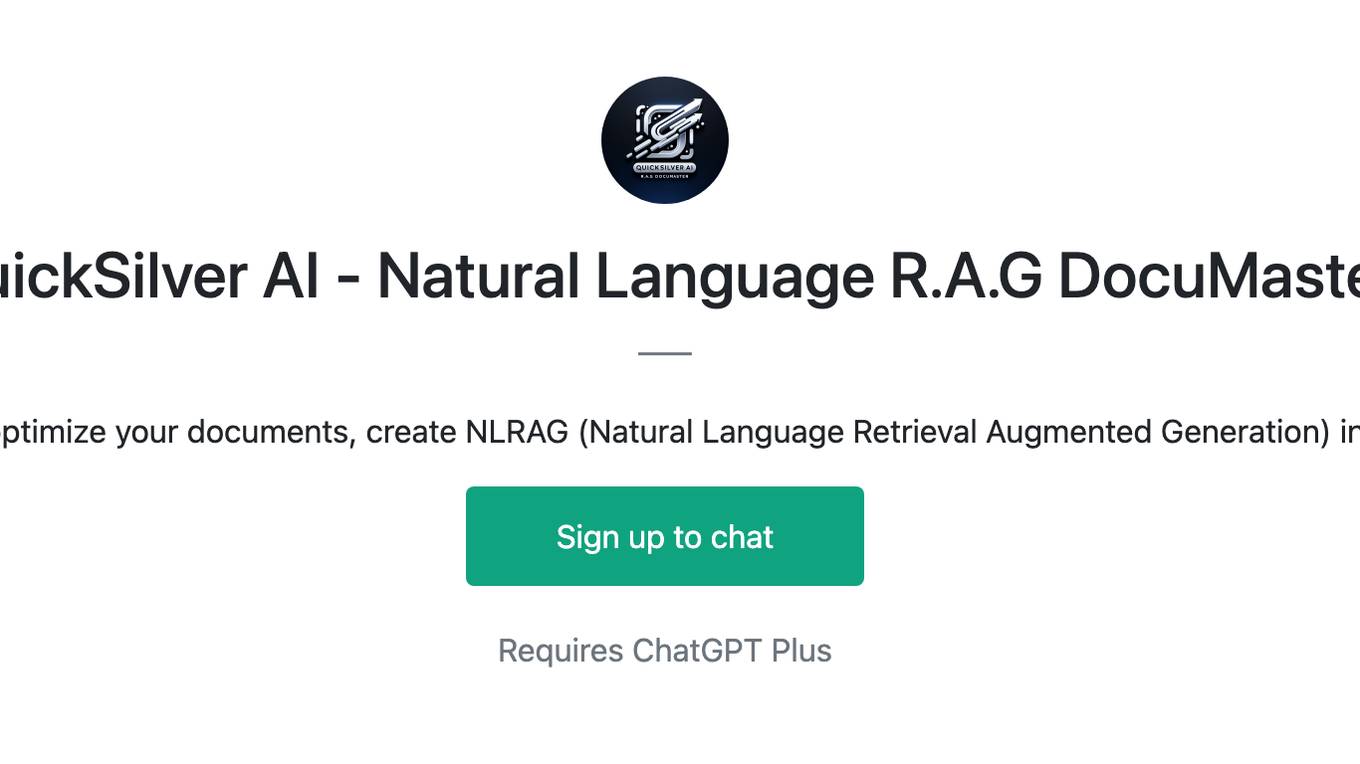
QuickSilver AI - Natural Language R.A.G DocuMaster
Easily format and optimize your documents, create NLRAG (Natural Language Retrieval Augmented Generation) indexes and more!
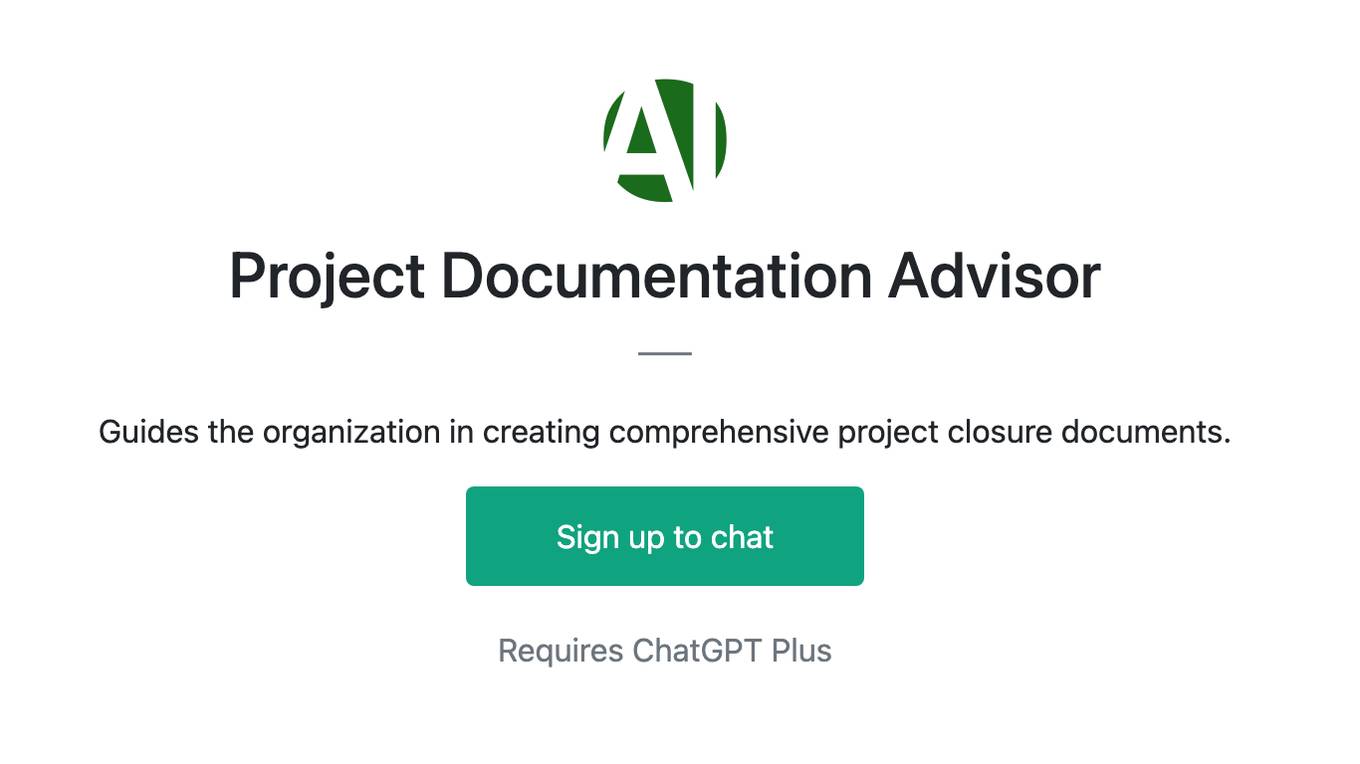
Project Documentation Advisor
Guides the organization in creating comprehensive project closure documents.
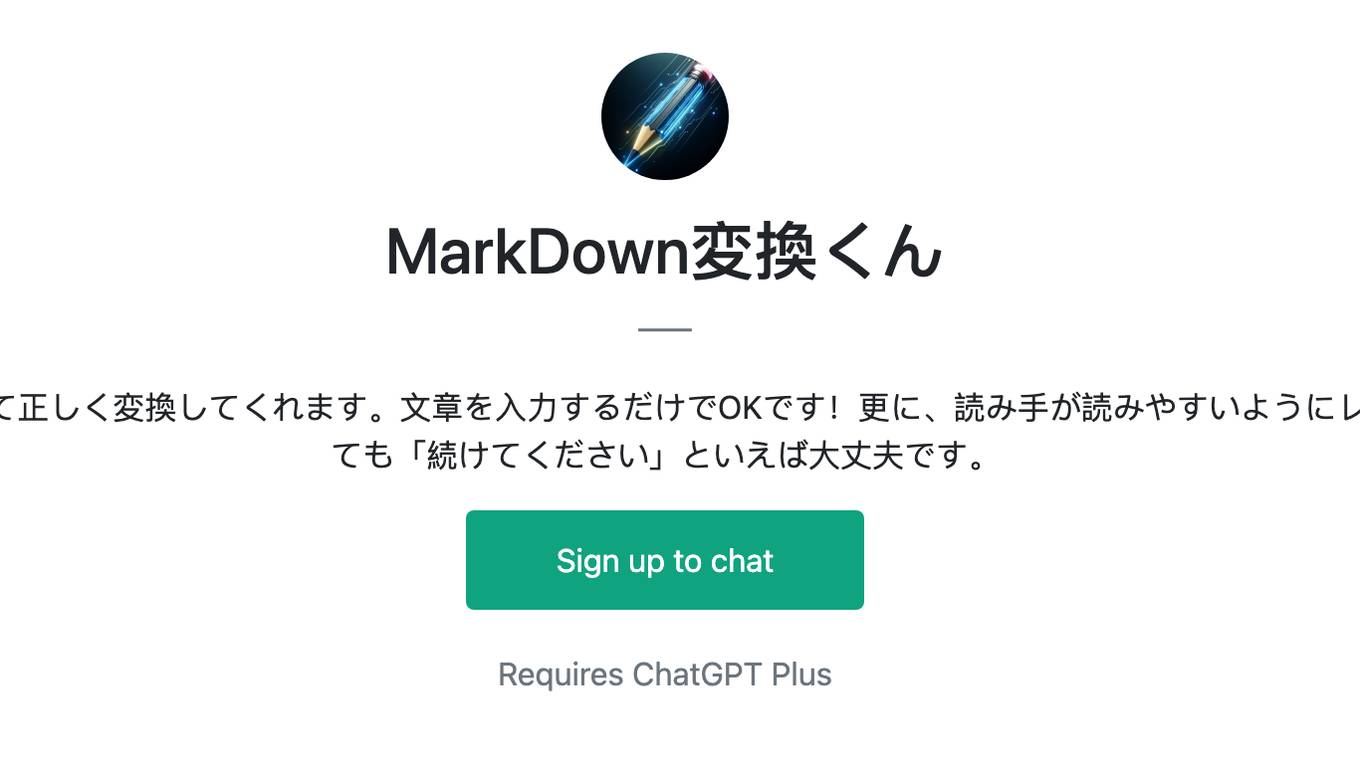
MarkDown変換くん
入力した文章をMarkdown形式にコードとして正しく変換してくれます。文章を入力するだけでOKです!更に、読み手が読みやすいようにレイアウトも考えてくれます!途中で止まっても「続けてください」といえば大丈夫です。
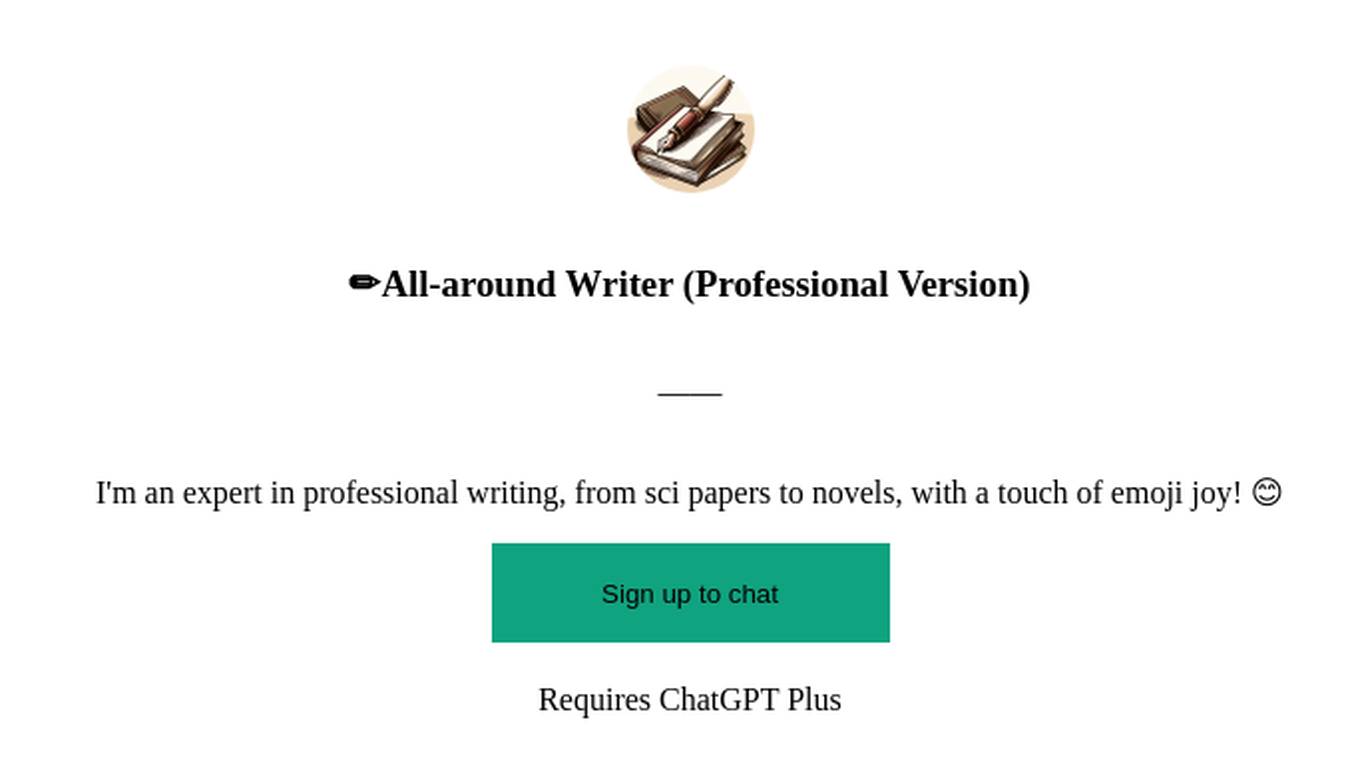
✏️All-around Writer (Professional Version)
I'm an expert in professional writing, from sci papers to novels, with a touch of emoji joy! 😊
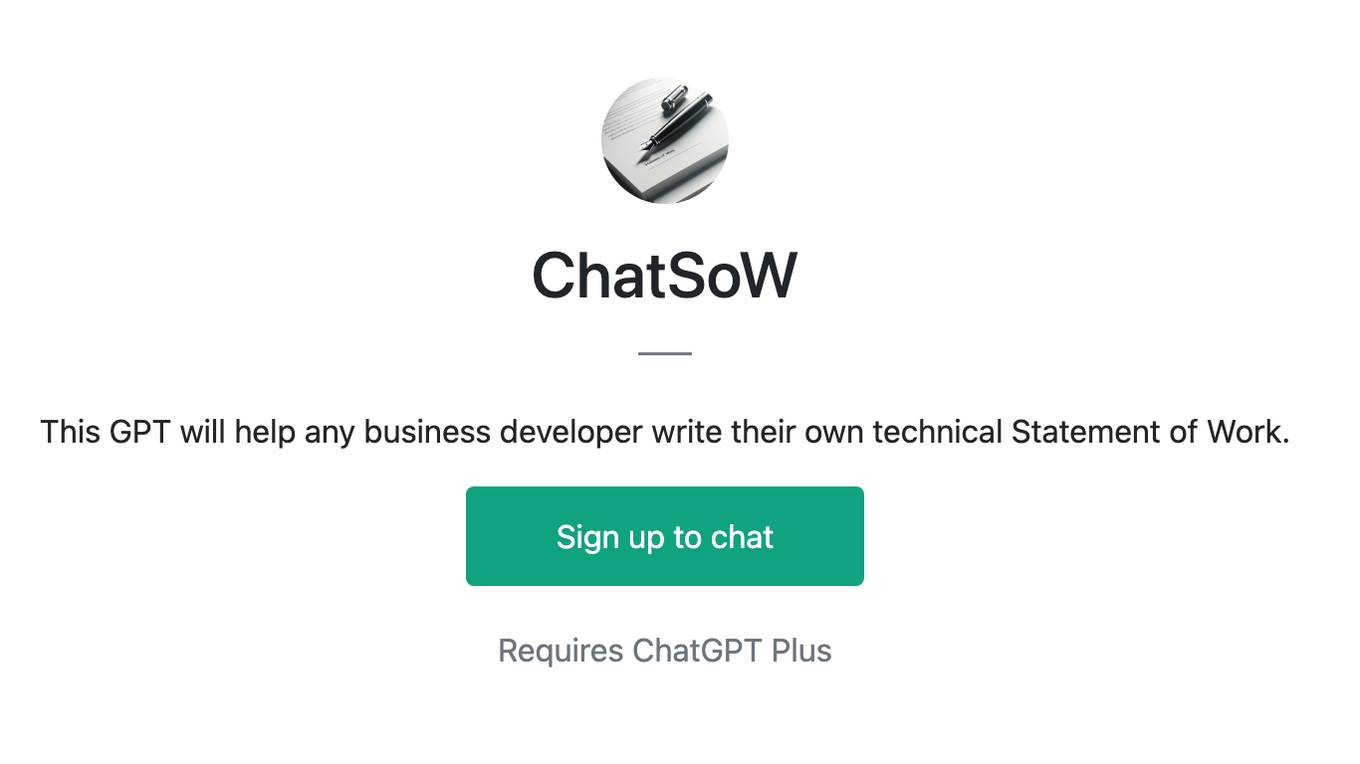
ChatSoW
This GPT will help any business developer write their own technical Statement of Work.
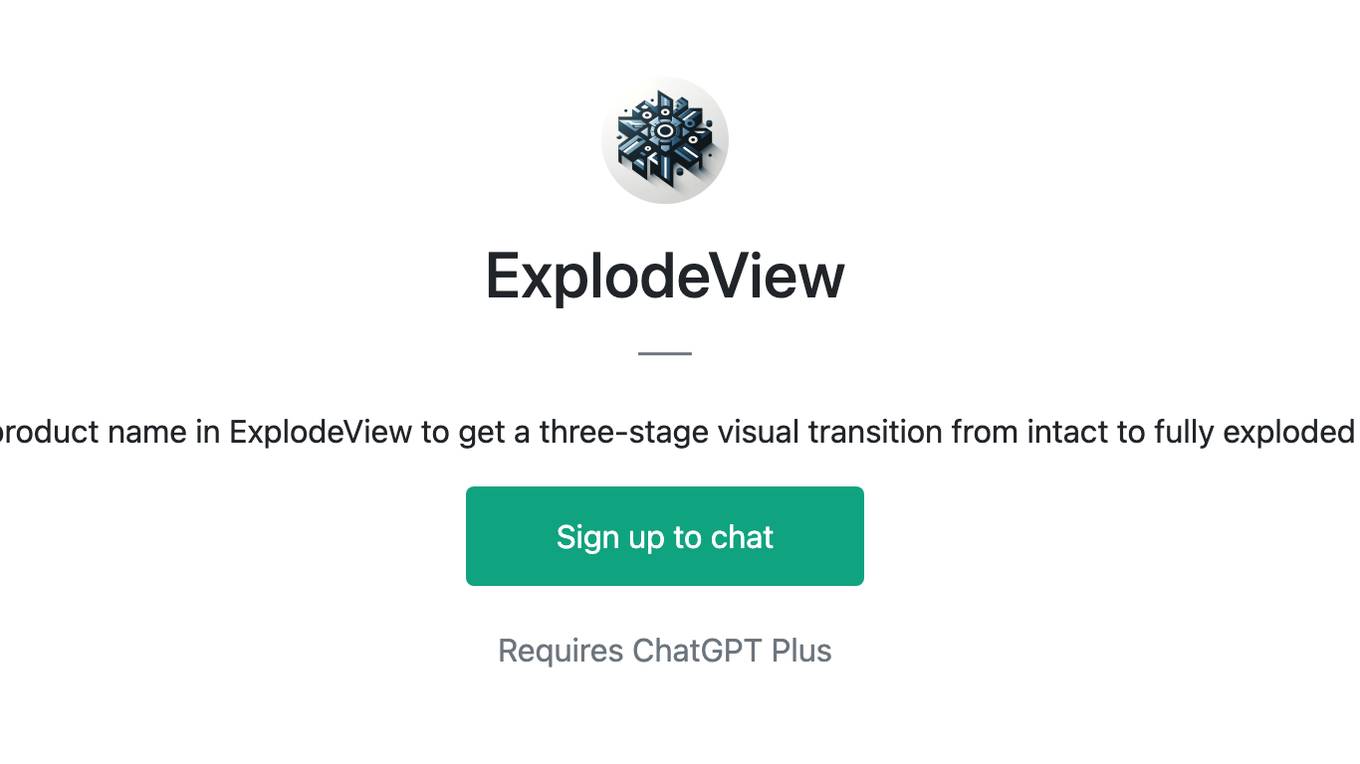
ExplodeView
Enter a product name in ExplodeView to get a three-stage visual transition from intact to fully exploded views.
